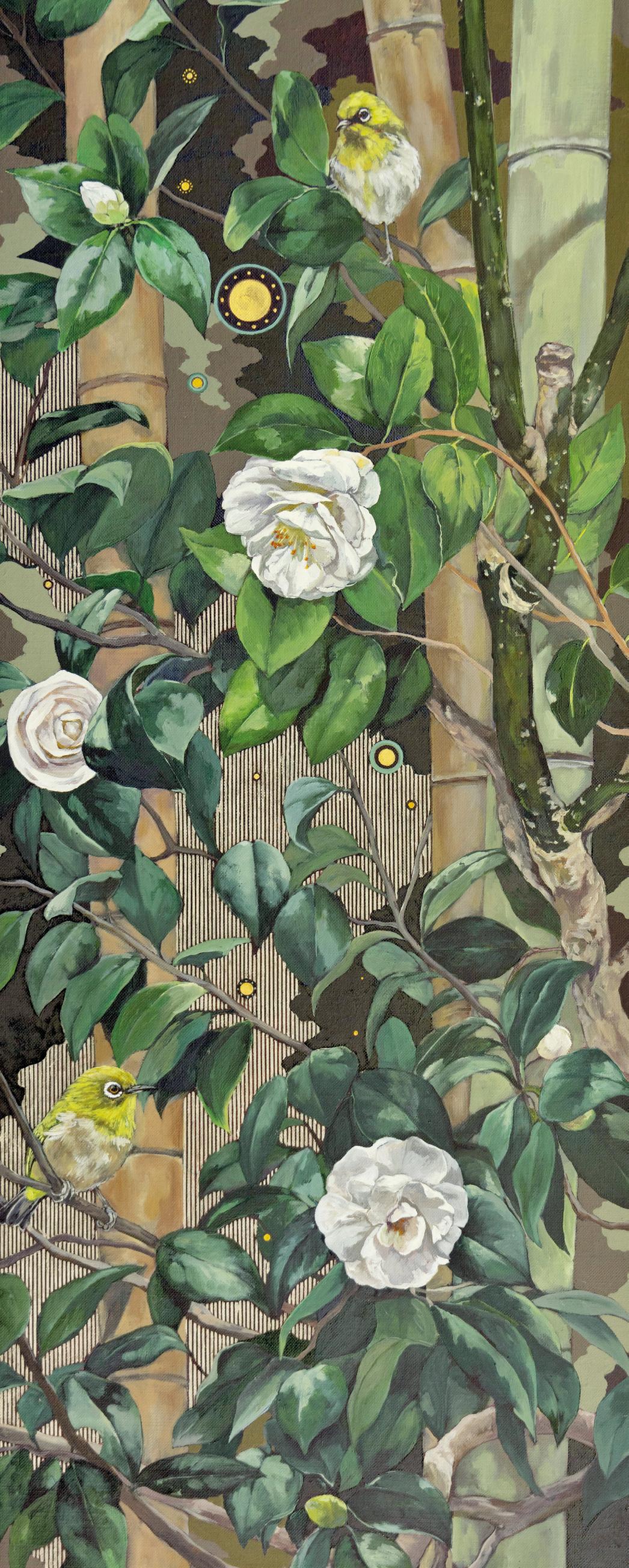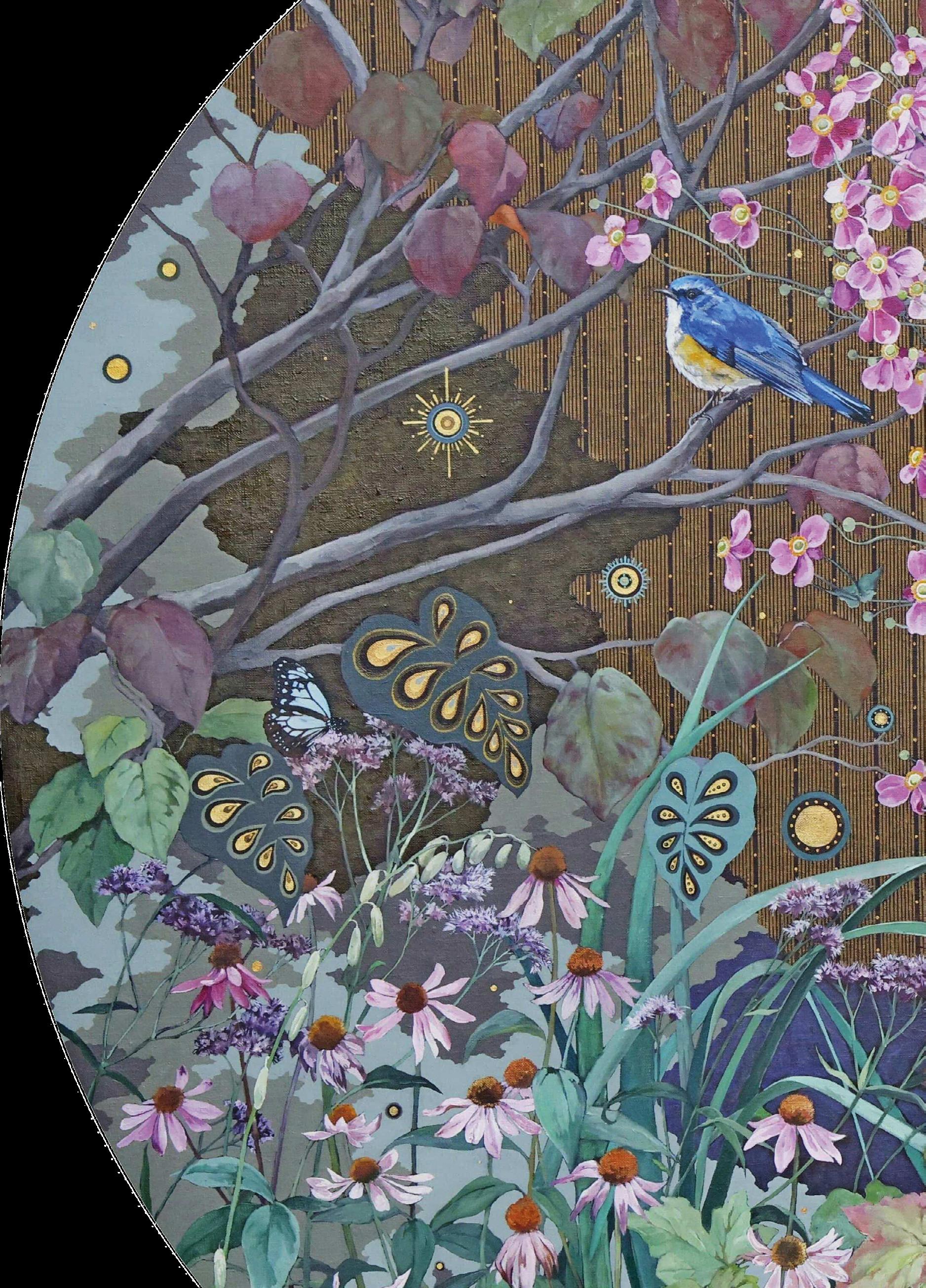








A sense of the interior, both spatial and psychological, is present in the paintings of Naoko Shibuya. There is no horizon, no sunlight, no shadow no perspective, no day nor night. Instead of these cues of conventional representation we are drawn into a dream world; reality is present but imaginatively reconstructed. It is observed reality that is the starting point for Shibuya, both for inspiration and visual information. The natural world of trees, flowers and birds is her hinterland; we see her sitting, drawing in a garden and bamboo forest, gathering information in sketchbooks, connecting with what she has called the invisible stream of fleeting moments. But it is the studio where the transformation takes place, where she creates her own floating world with oil paint. In so doing she acknowledges the significant traditions in both Japanese and western art. The art of Ikebana, liteally making flowers alive, or kado, the way of flowers is a tradition going back a thousand years, reflecting the poetry of Kokin Wakashū in the tenth century, adapted to Zen Buddhism, traditional virtues exemplified in the Eighth Shogun Yoshimasa who retired from politics in 1473 to devote himself to tea ceremony and the traditional arts of Higashiyama culture. Japanese embroidery, nihon shishu, has a similar, long history, often deployed on courtly clothing, surely acknowledged in some of the formats chosen in Shibuya’s new body of work.
Edinburgh has become a second home for Shibuya and the Botanics was an inspiration in the time she spent here. In addition her work connects with the Japanism and revival of interest in the medieval so important to Art Nouveau, which is a significant strain in Scottish art of the modern period. Margaret Mackintosh, whose intricate compositions are a genuine Scottish contribution to international art and design at the beginning of the twentieth century continues to inspire others today like Una Shanks and Shibuya.
All this is available to Shibuya, absorbed into her practice, the starting point for the creation of her own, particular vision, but it is important to recognise the contemporary, modern nature of her work. Her colour palette is naturally derived but also shares much with Manga and Anime (cultural territories that are deeply rooted in Japanese traditions). But, like a good modernist, she eschews symbolism or agitation; she creates her world and allows the viewer to be drawn in and perhaps find the connections the artist herself feels so strongly.
Guy Peploe
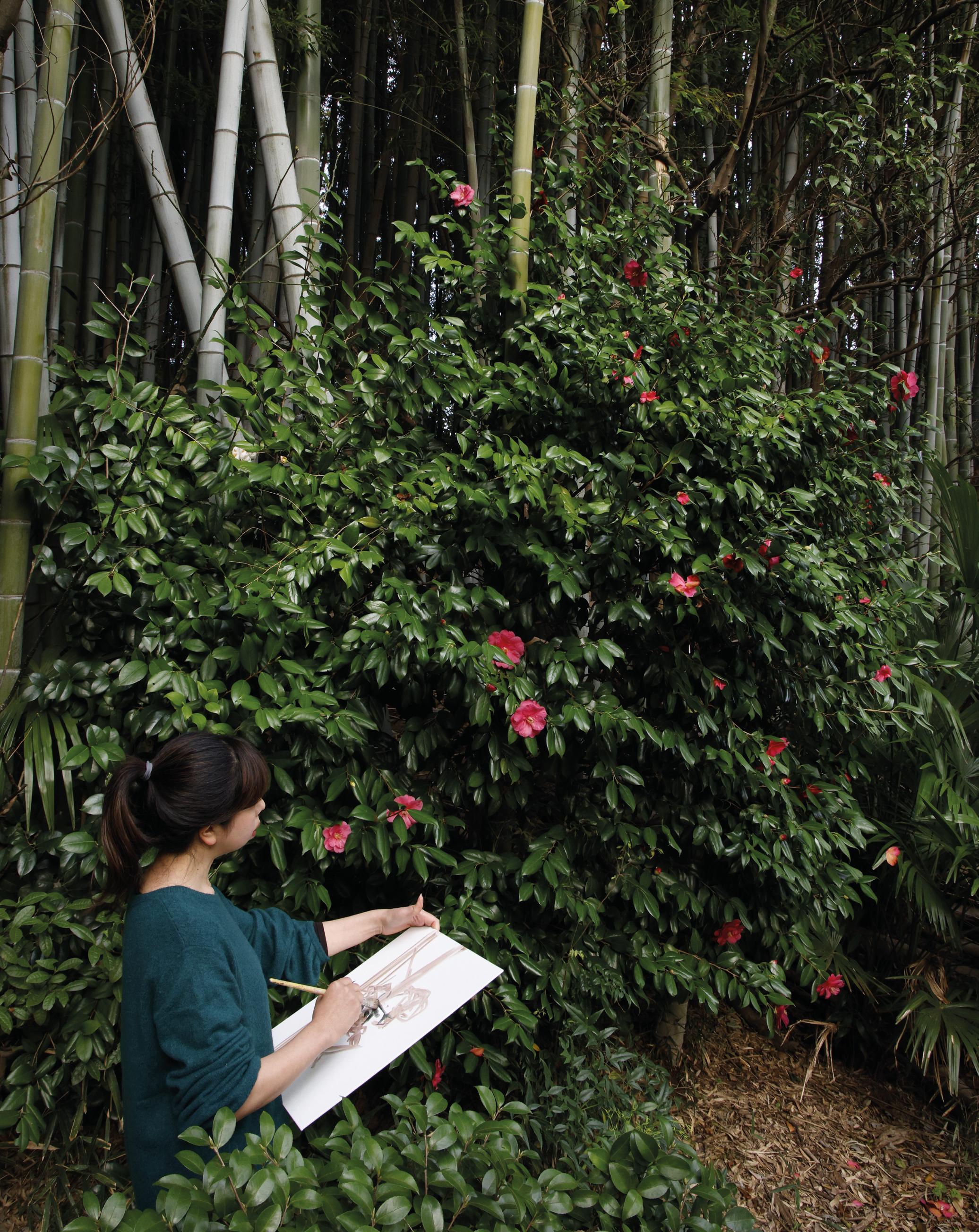
Most of the imagery in my paintings comes from the impressions and spectrum of the natural world. My Japanese studio is based at my family home in Tokyo, where I find my subjects in the surrounding local gardens and spend a lot of time tending to my own garden. I draw inspiration from the forms of trees, plants, flowers, small birds, and butterflies—not only for their visual effects but also to express the strength and resilience of nature. My inspirations stem from both my physical and emotional experiences when I witness the natural world in its most basic forms. This could be as simple as gazing out of a window or immersing myself in a wilder environment. I sometimes visit one of my favourite gardens, Moeginomura, which is a three-hour drive from Tokyo. I sketch ideas and potential compositions in situ and form my final compositions in the studio.
Plants and flowers undergo dramatic changes in such a short time when they bloom and when they wither. Each moment in their life cycle represents a particular point in time, which I seek to express in my paintings. I am especially fond of the Camellia and Bamboo (Tsubaki) series, as they remind me of my childhood and the environment of my ancestral home. I find spring and autumn to be the most prolific periods of the growing season. Ivory Blossom (cat.8) and Botanic Symphony (cat.23) were directly influenced by my visits to the Edinburgh Botanic Gardens. The circles and spirals in my work symbolize reincarnation, often found in Zen and Celtic philosophy. I have been striving to express the repeating and everlasting flow of life through these forms. Drawing inspiration from these symbols and combining them with my drawing is the essence of my personal artistic rhythm.
In Sanctuary, I have drawn inspiration from places that hold particular significance to me. These locations are spread across Scotland, England, and Japan. I fell in love with Edinburgh from my first visit and became more attached to the city during my studies there. I love the blend of the old and new, and its long history. However, I have drawn my subject almost exclusively from Japan for this exhibition. From this position I am lucky to be able to immerse myself in natural beauty and be in direct contact with the essence that inspires me. I aim to fill my canvases with memories of wind, light, scent, sound, and emotion.
Naoko Shibuya
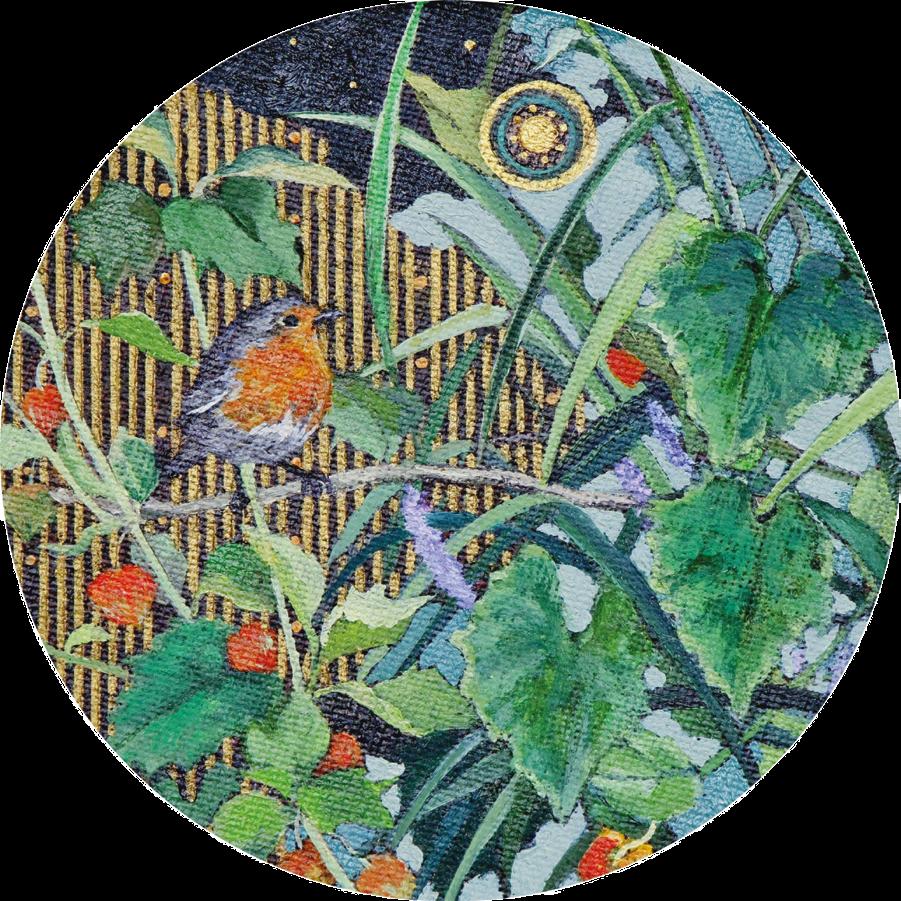

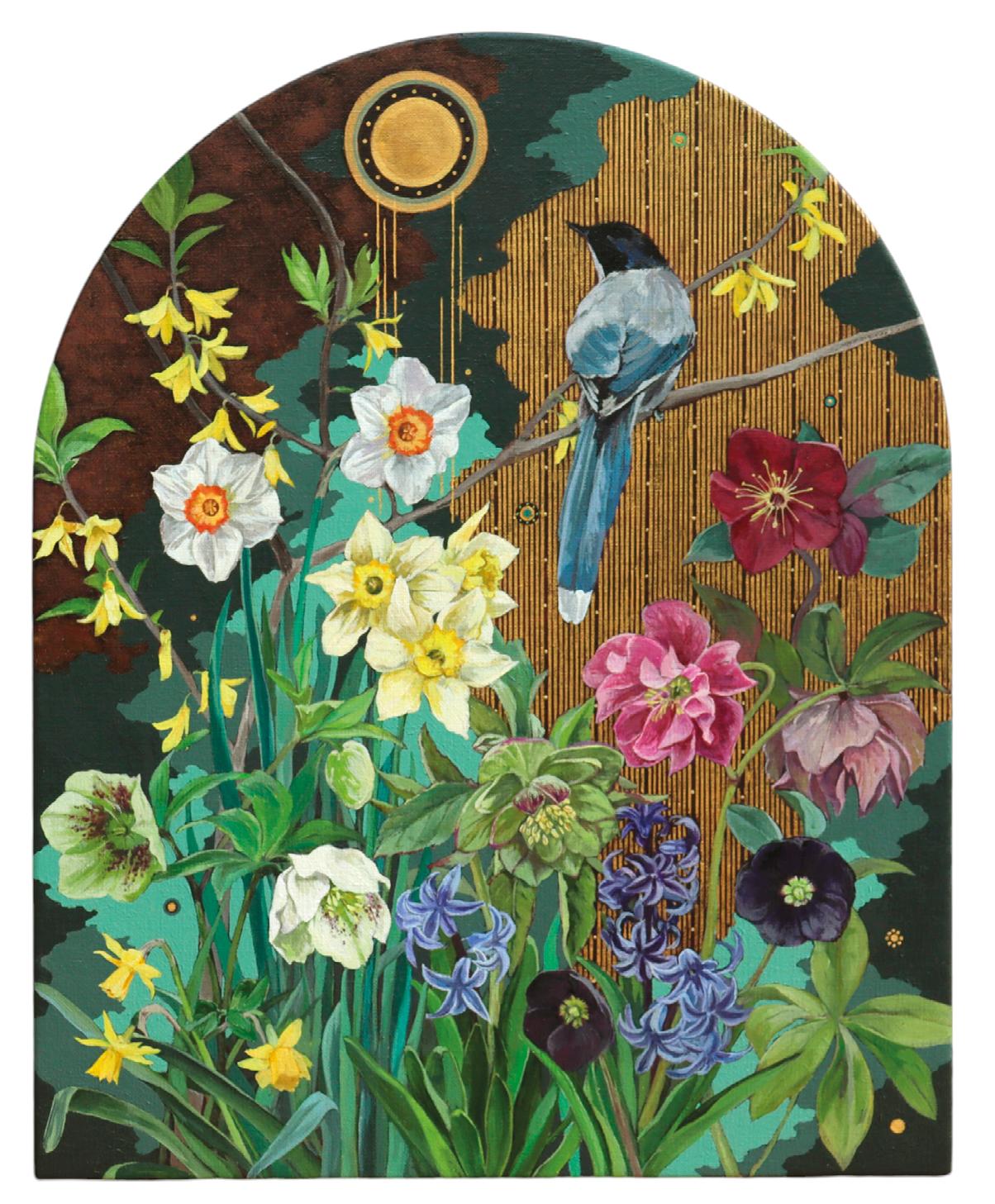

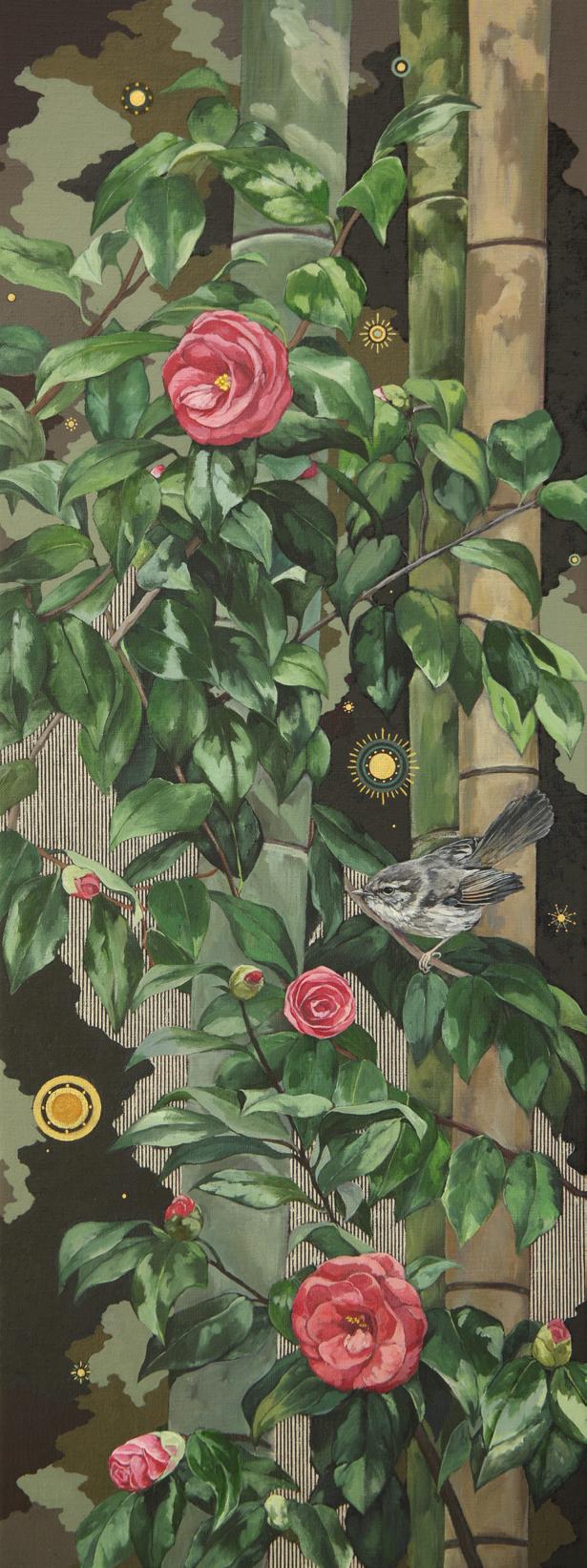
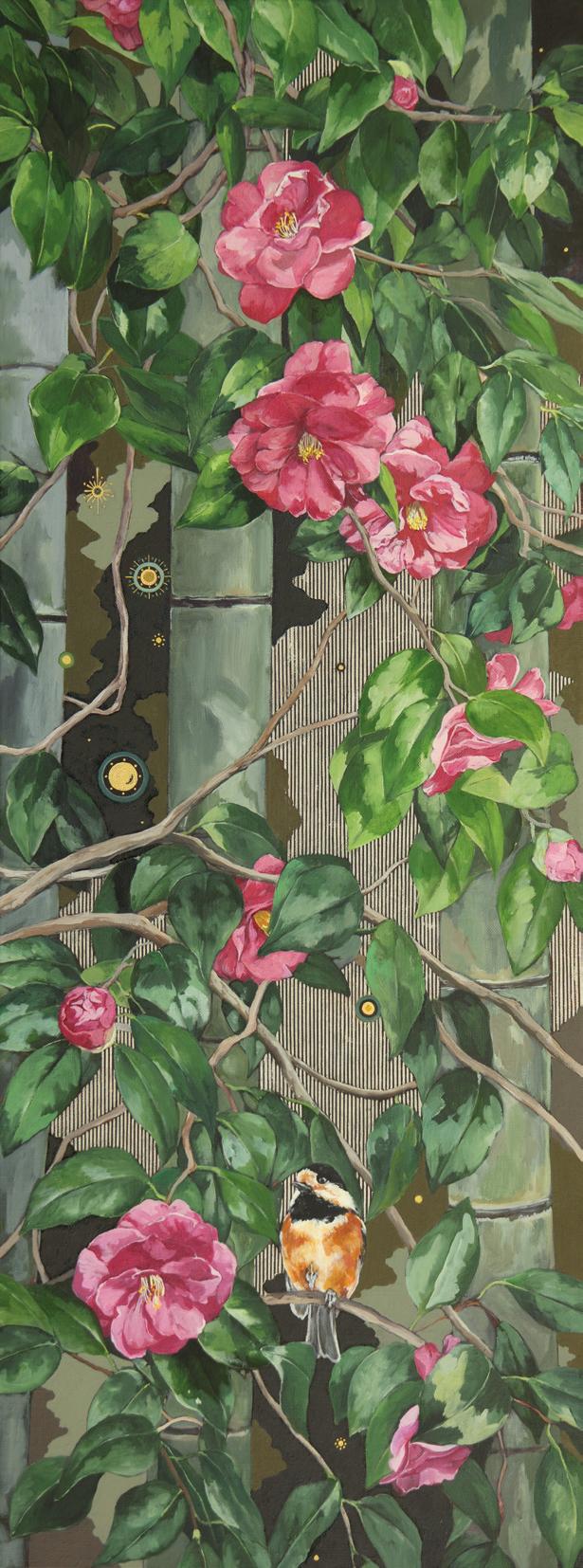
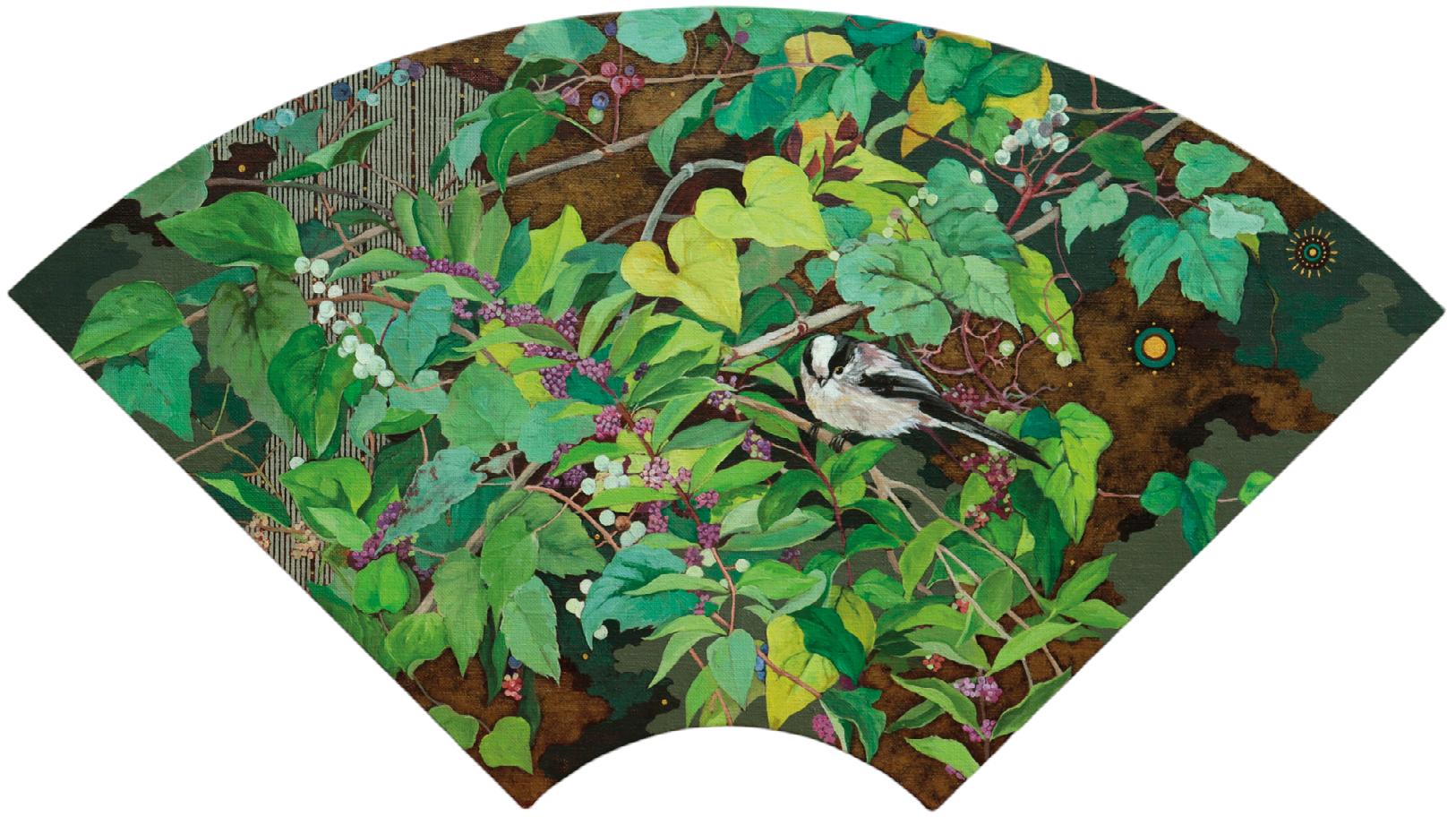
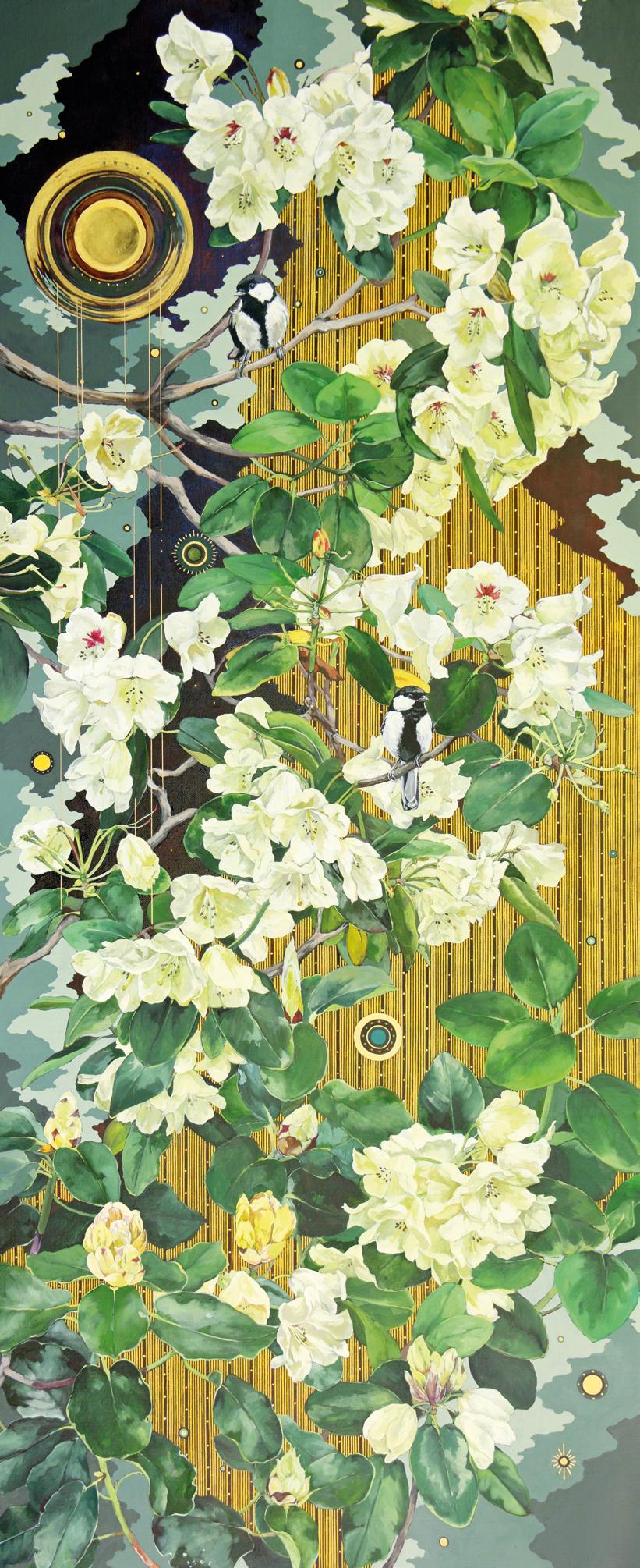
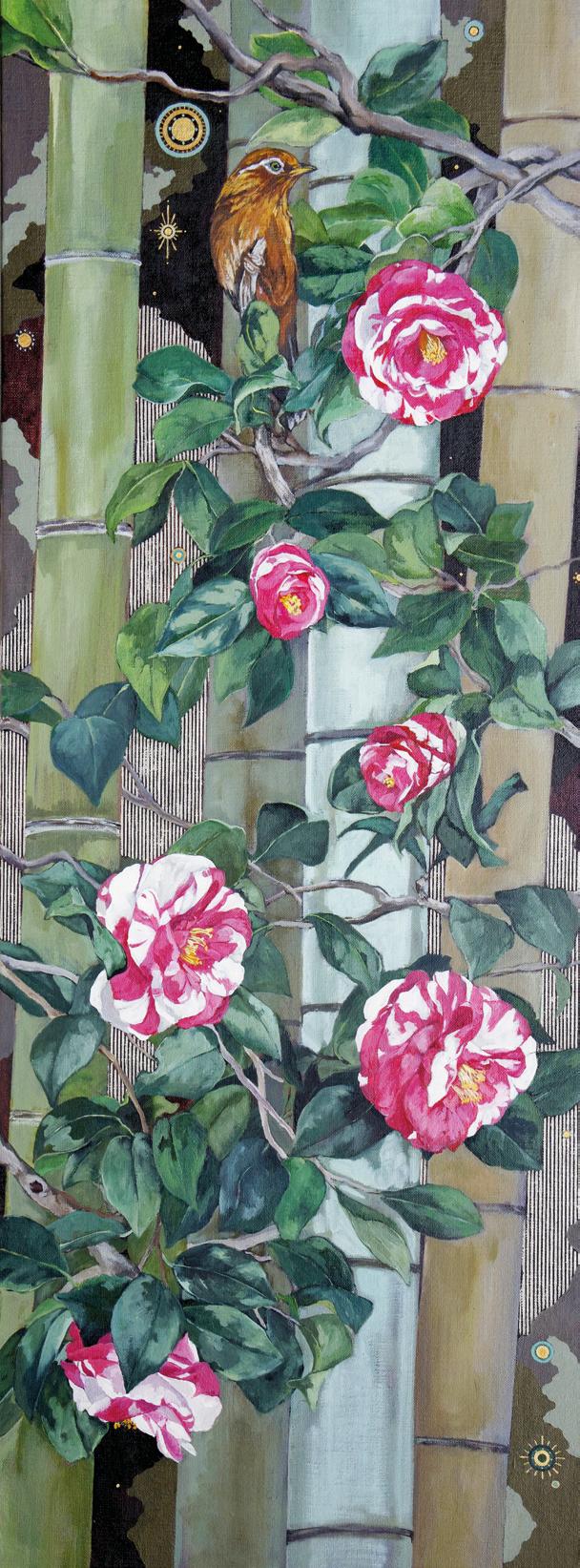
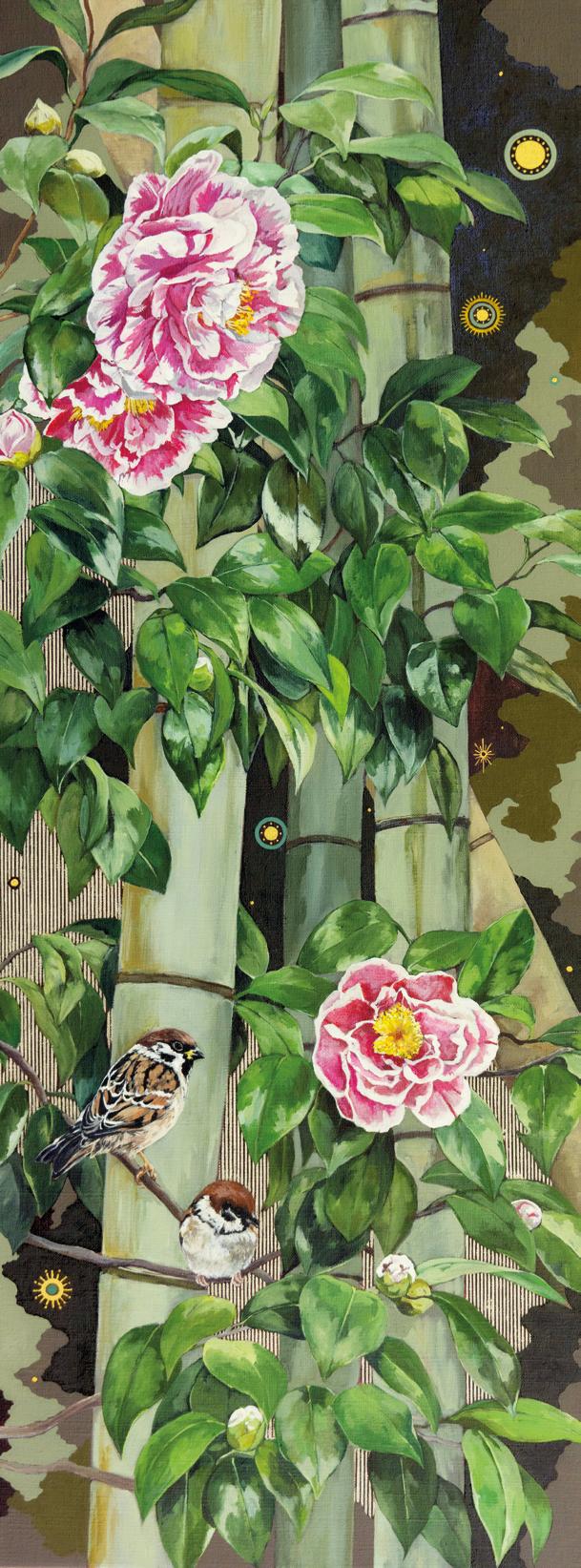
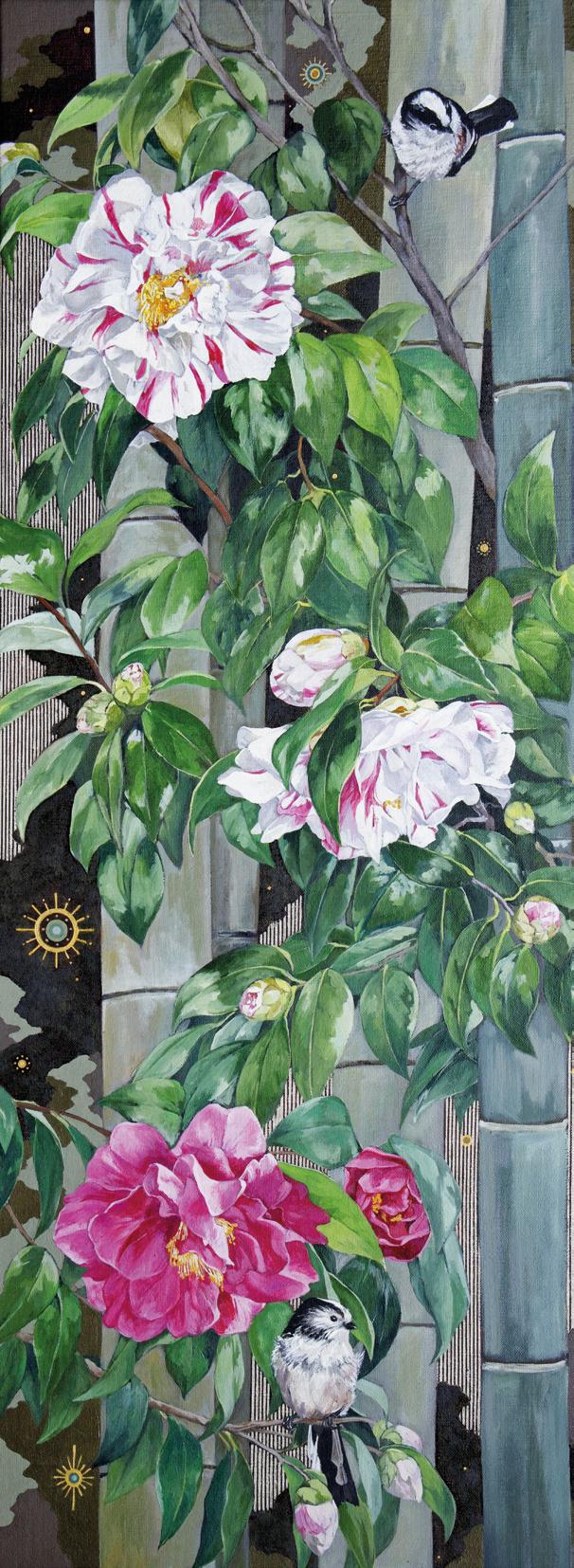
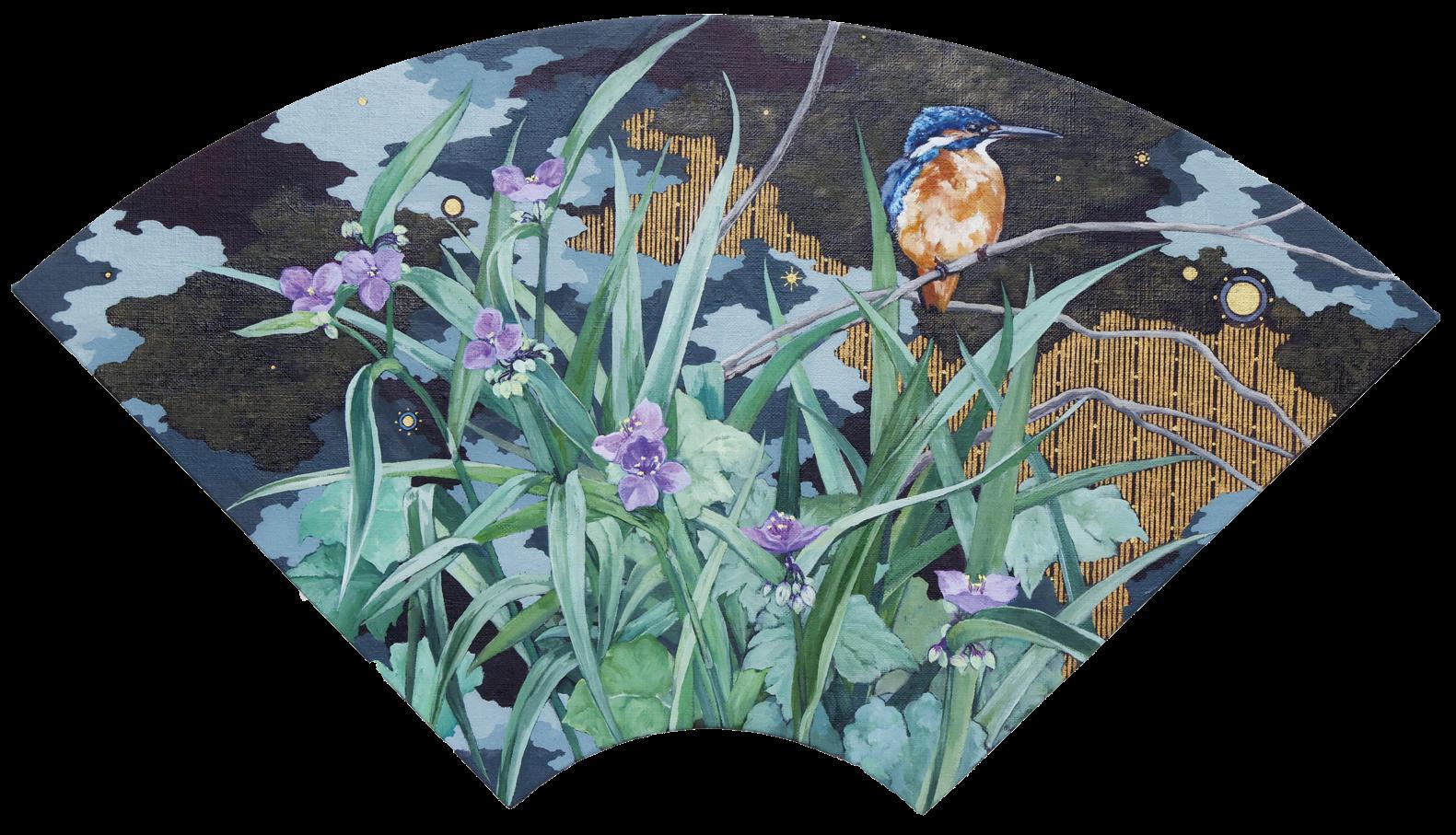
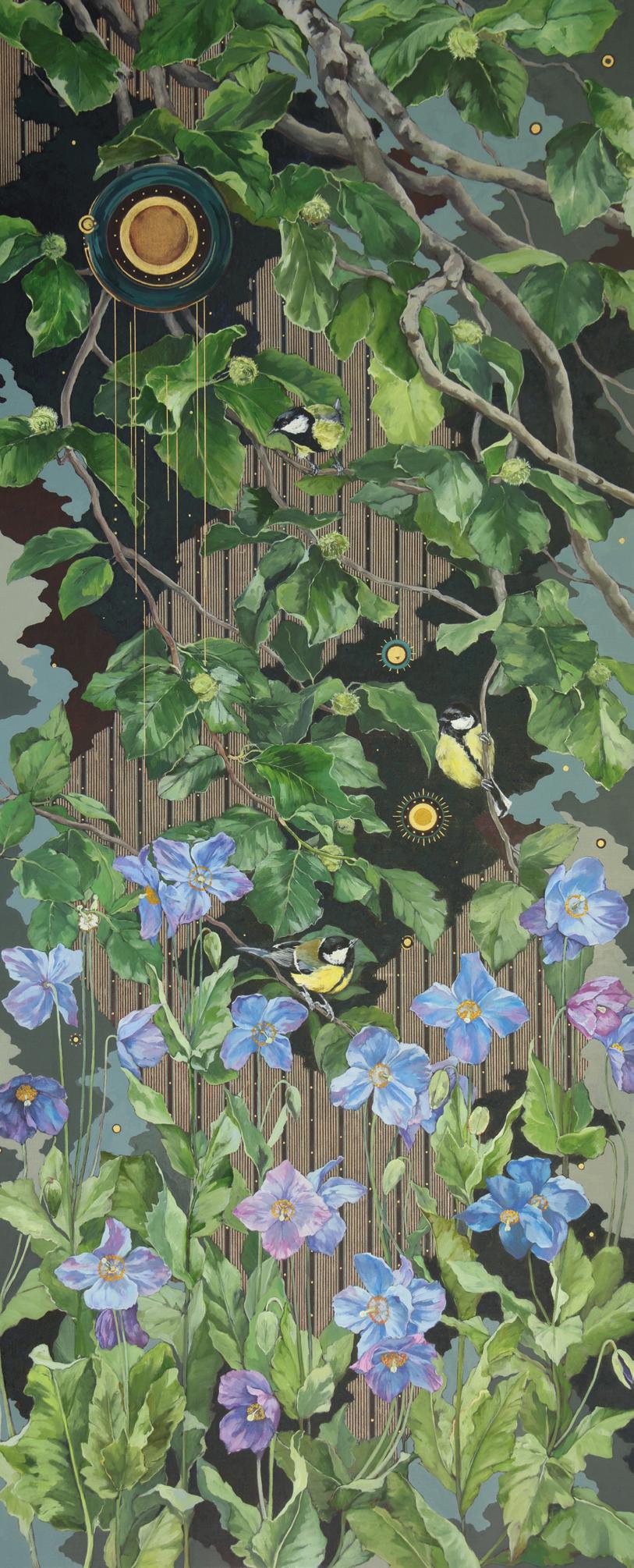
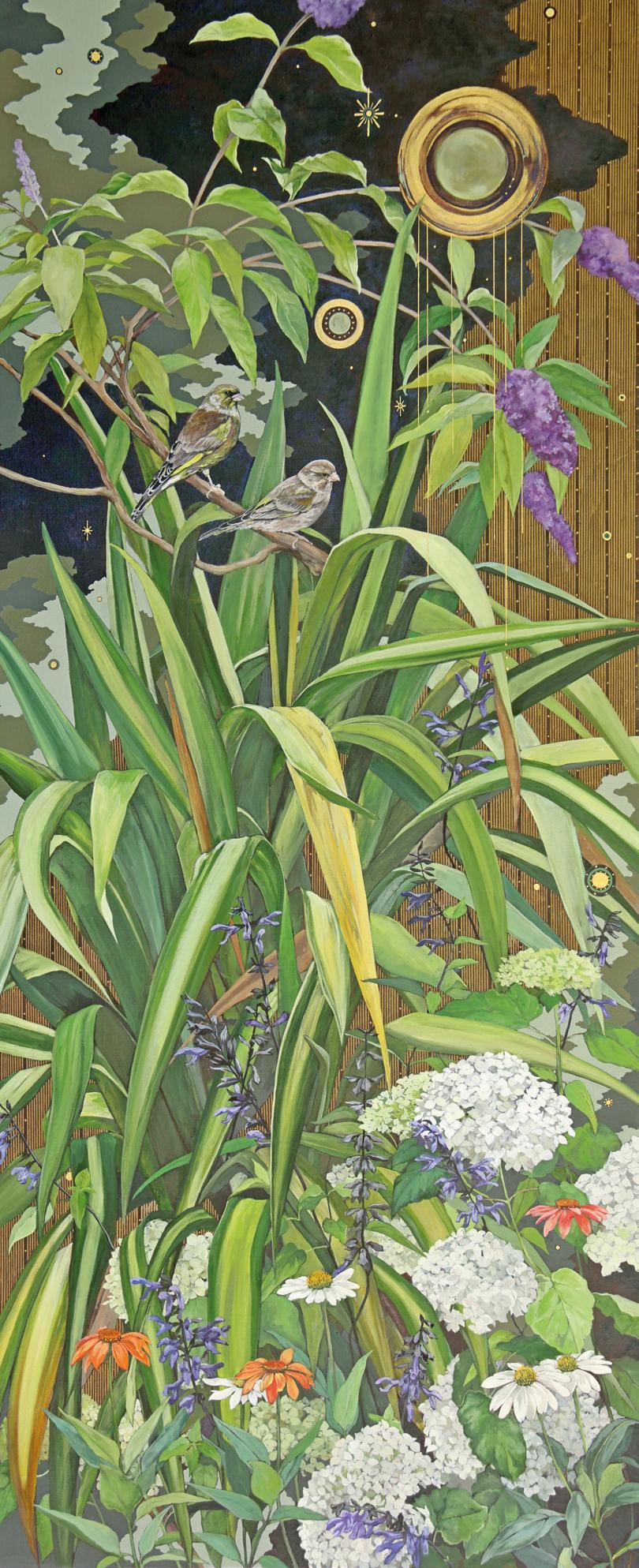
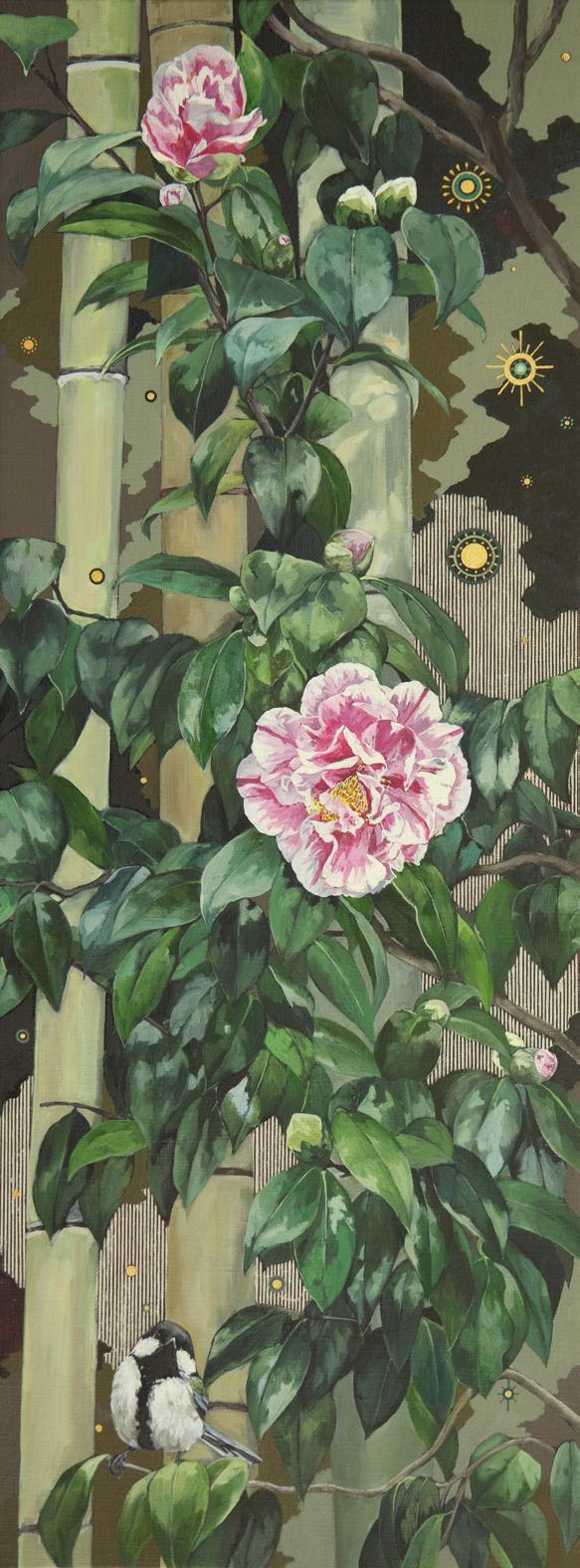
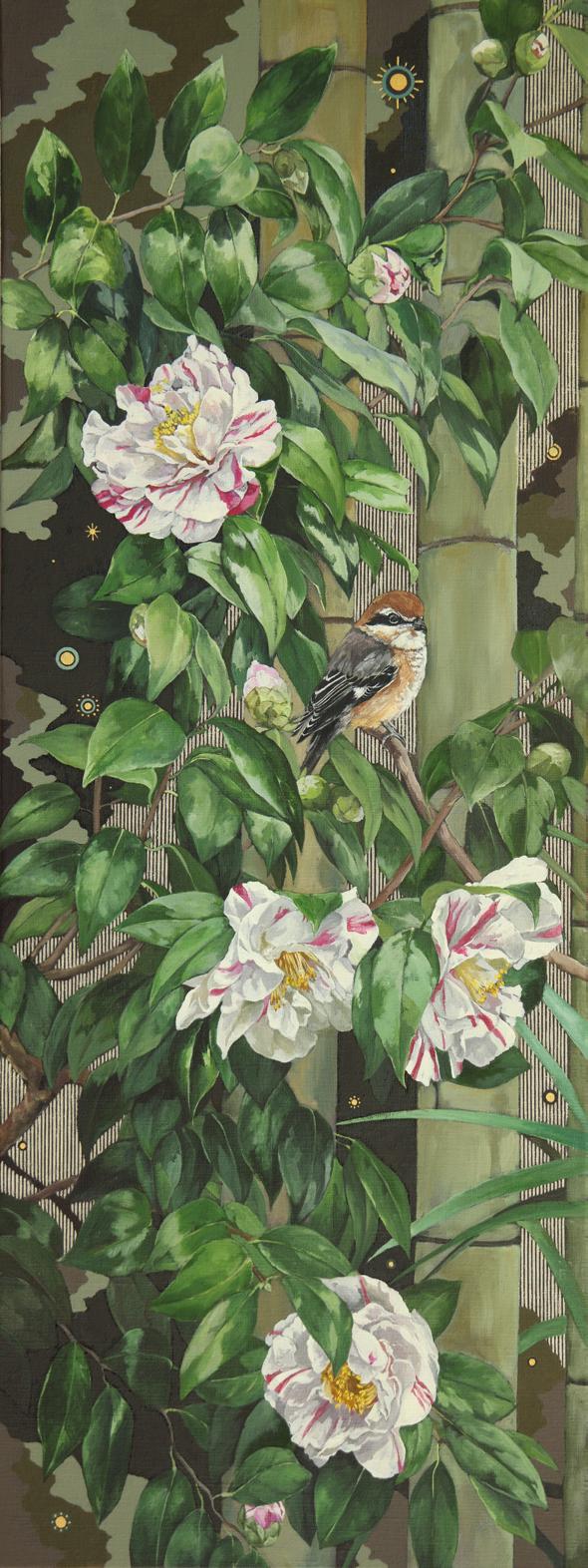
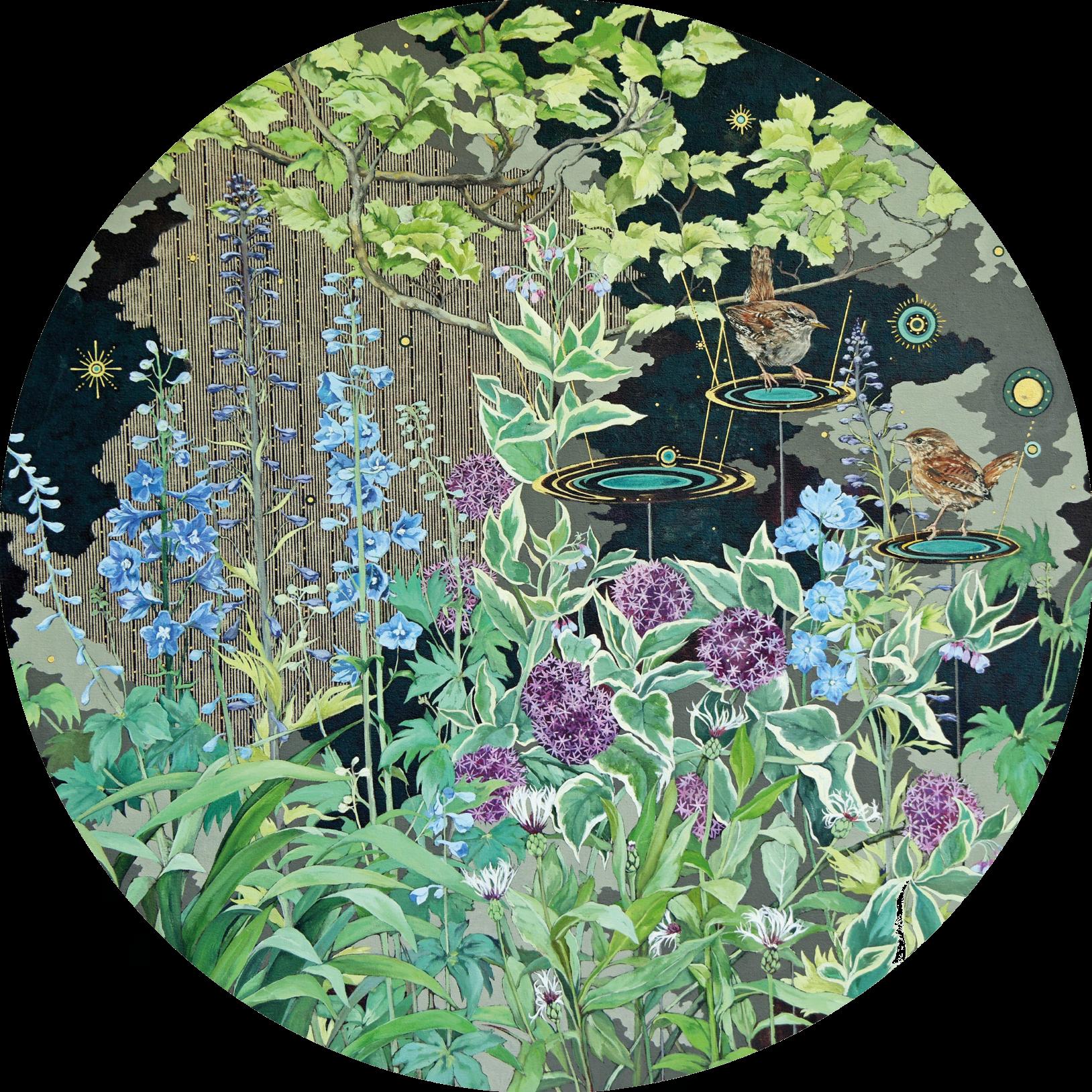
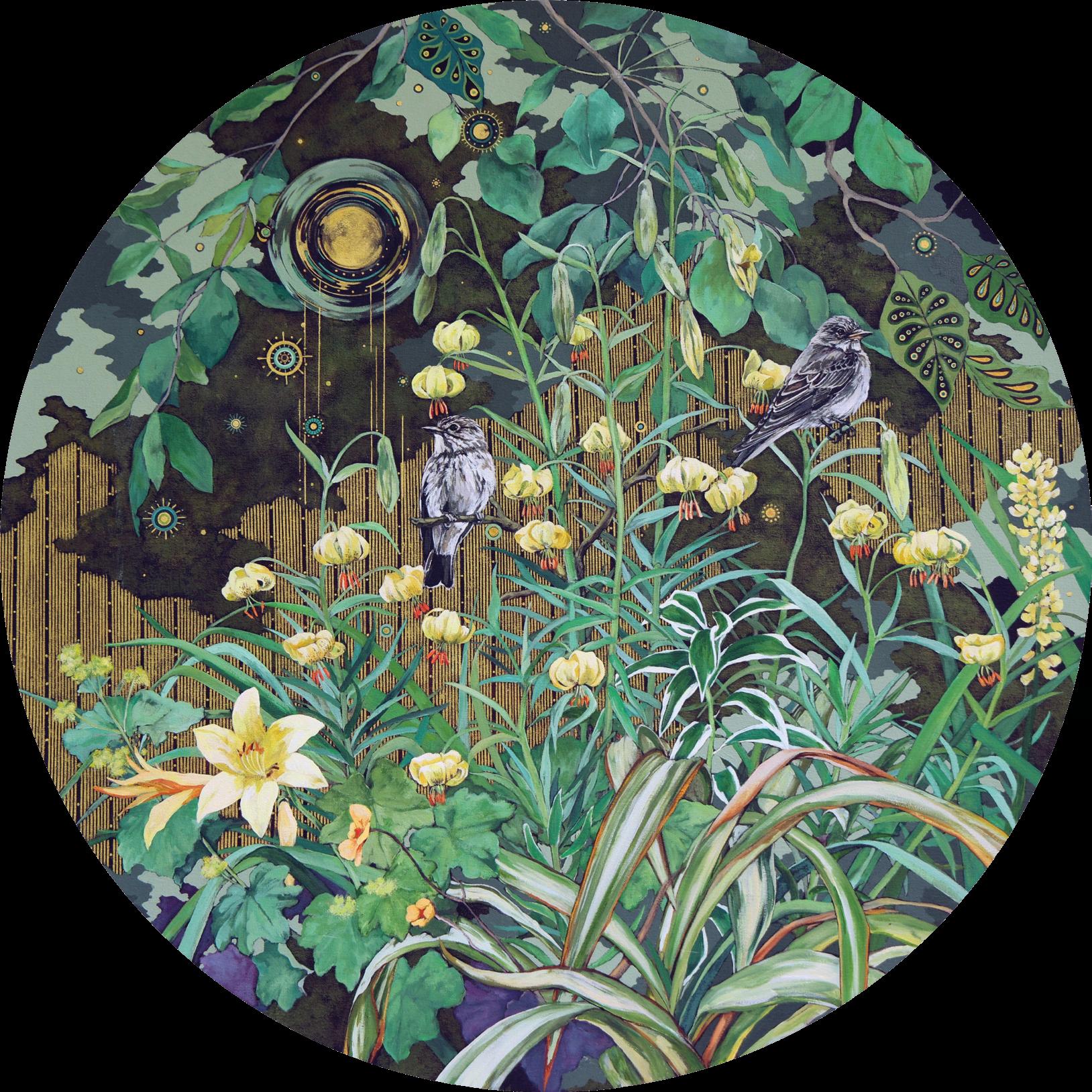
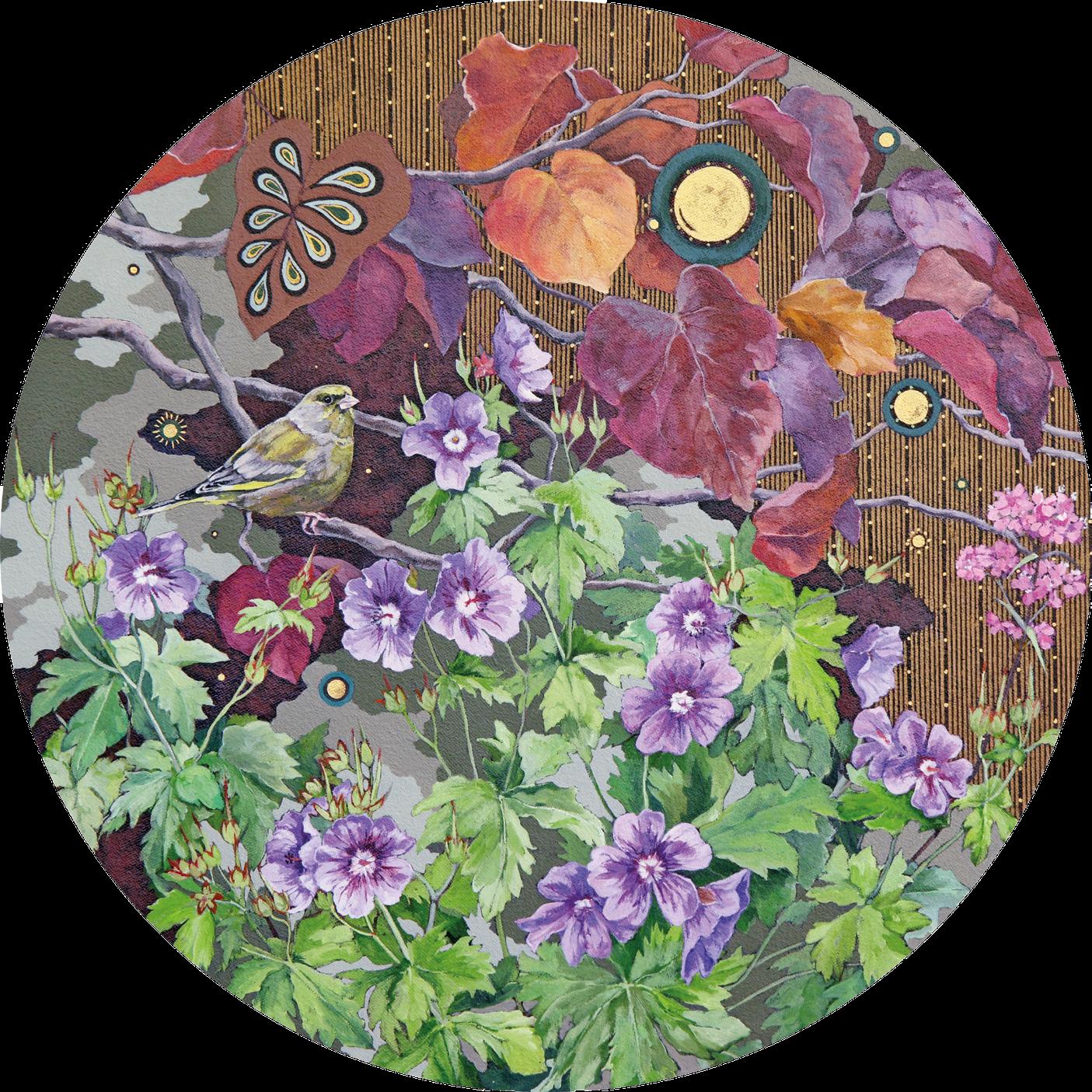
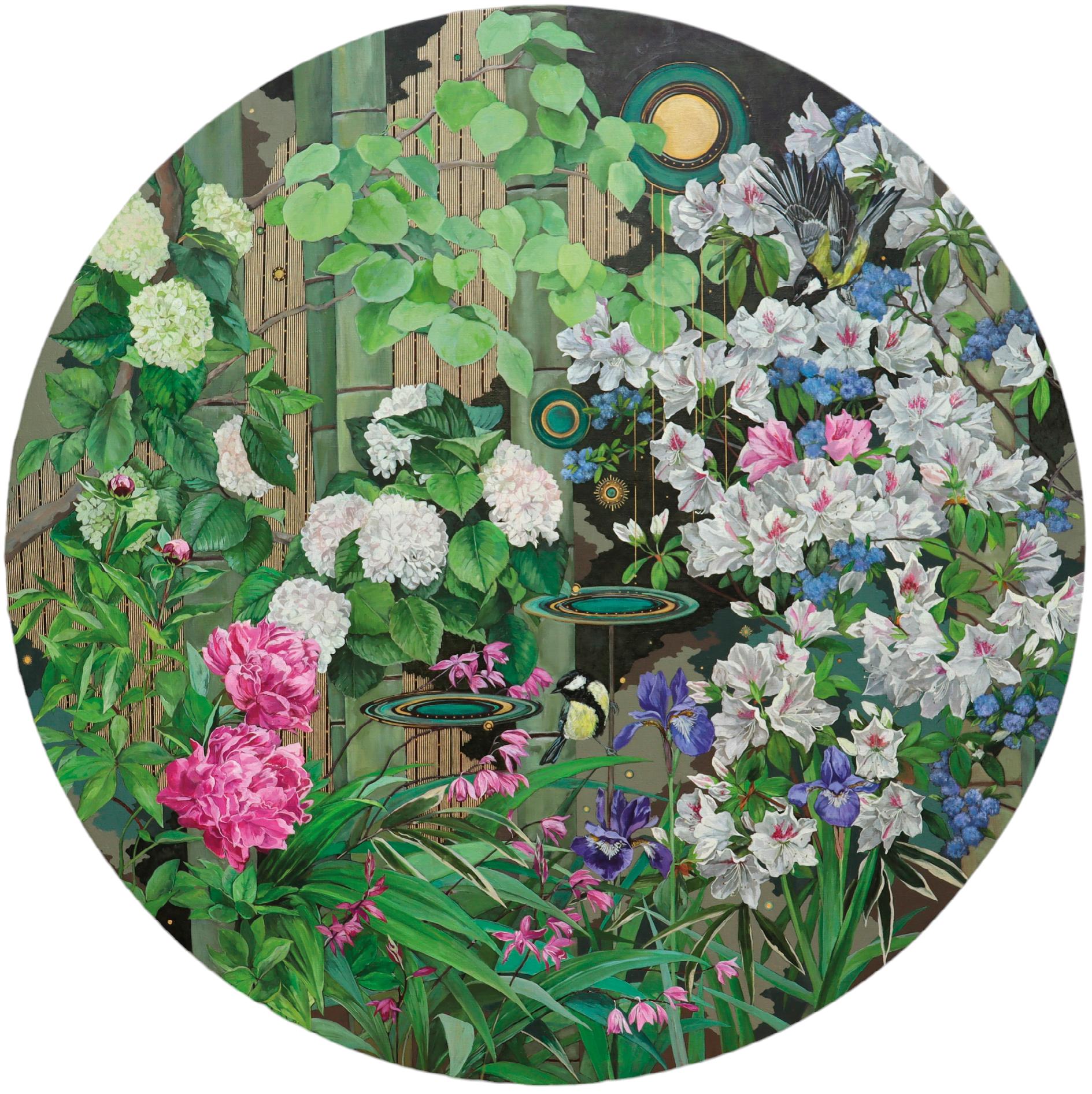
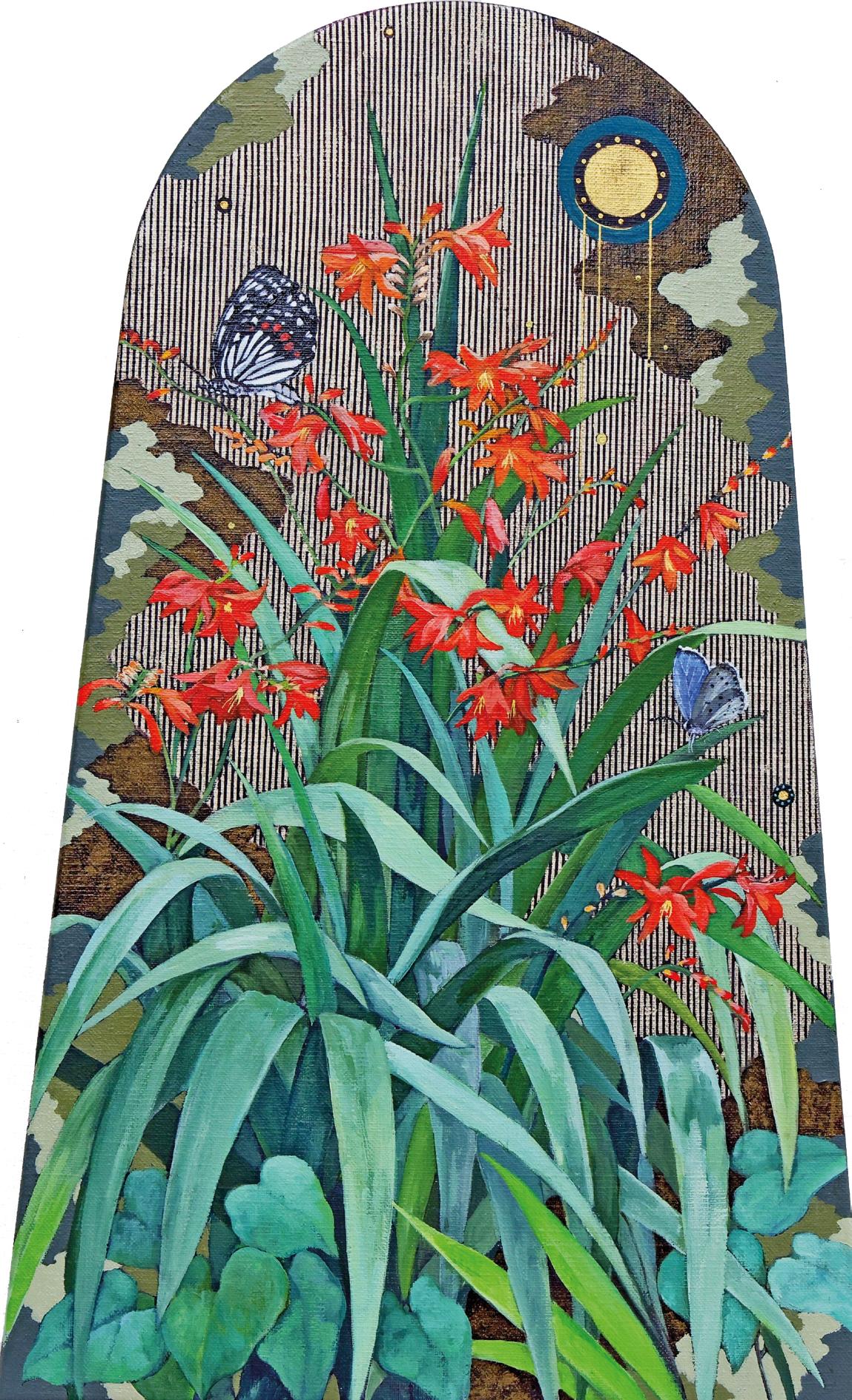
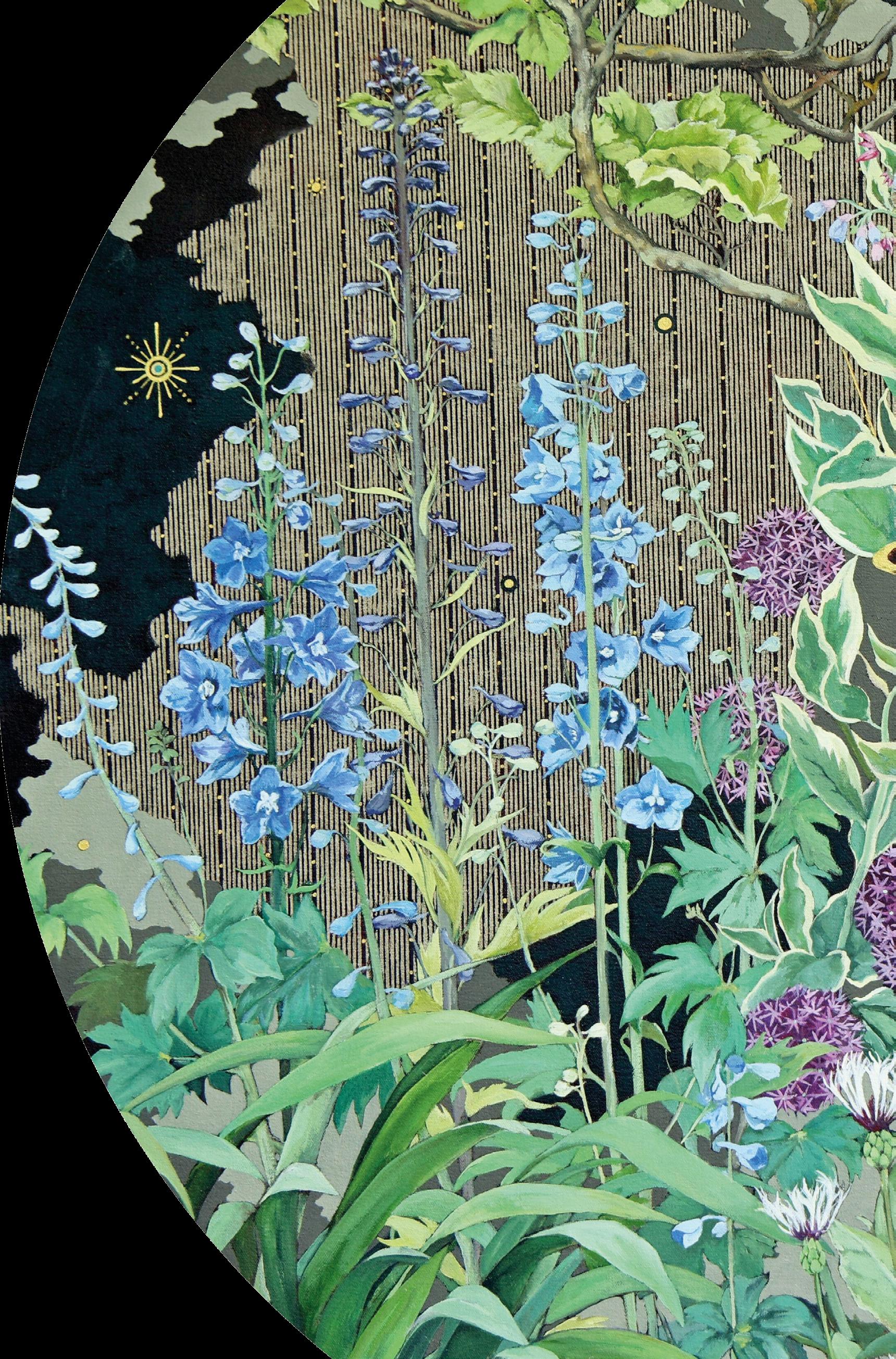
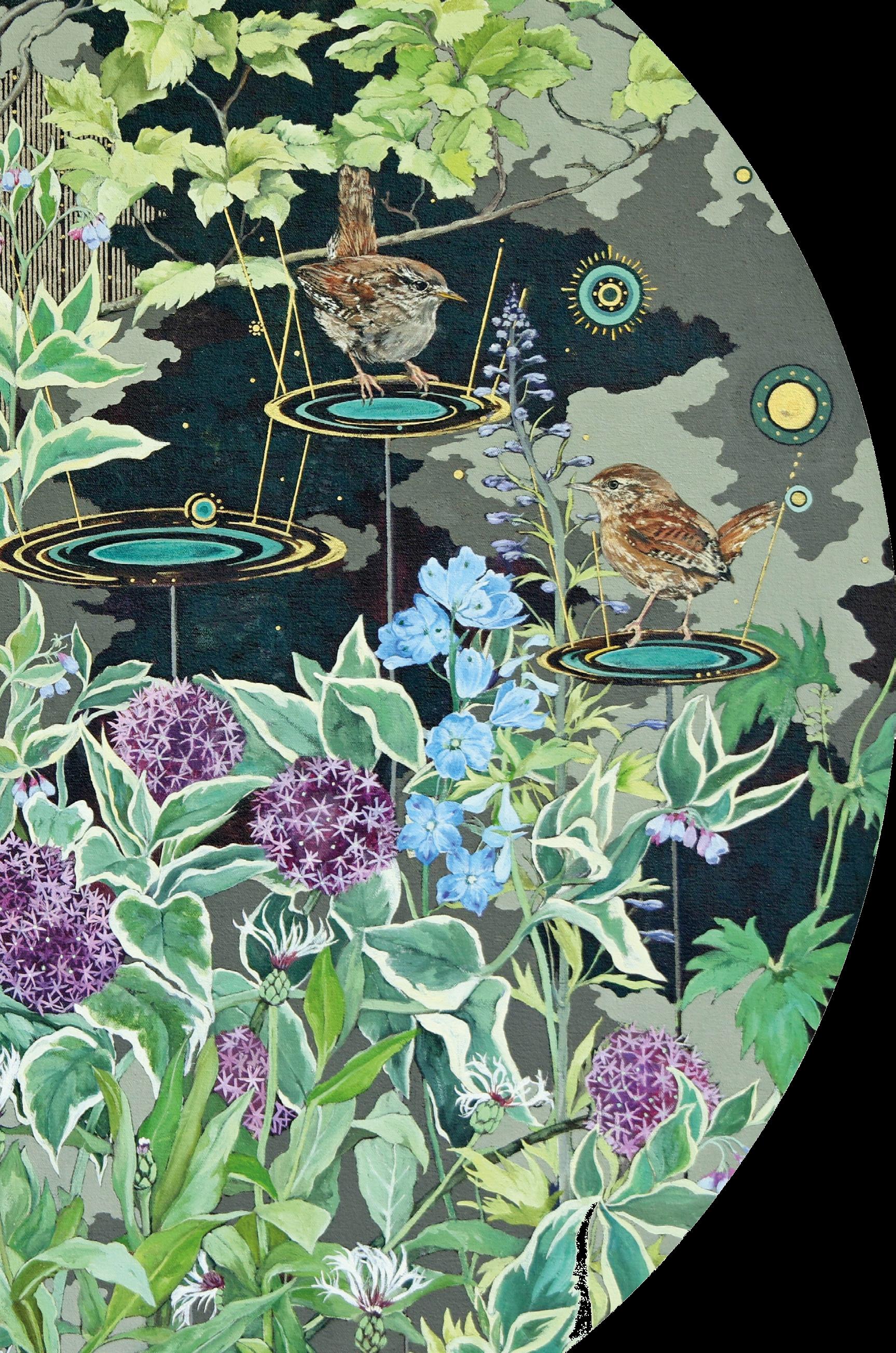
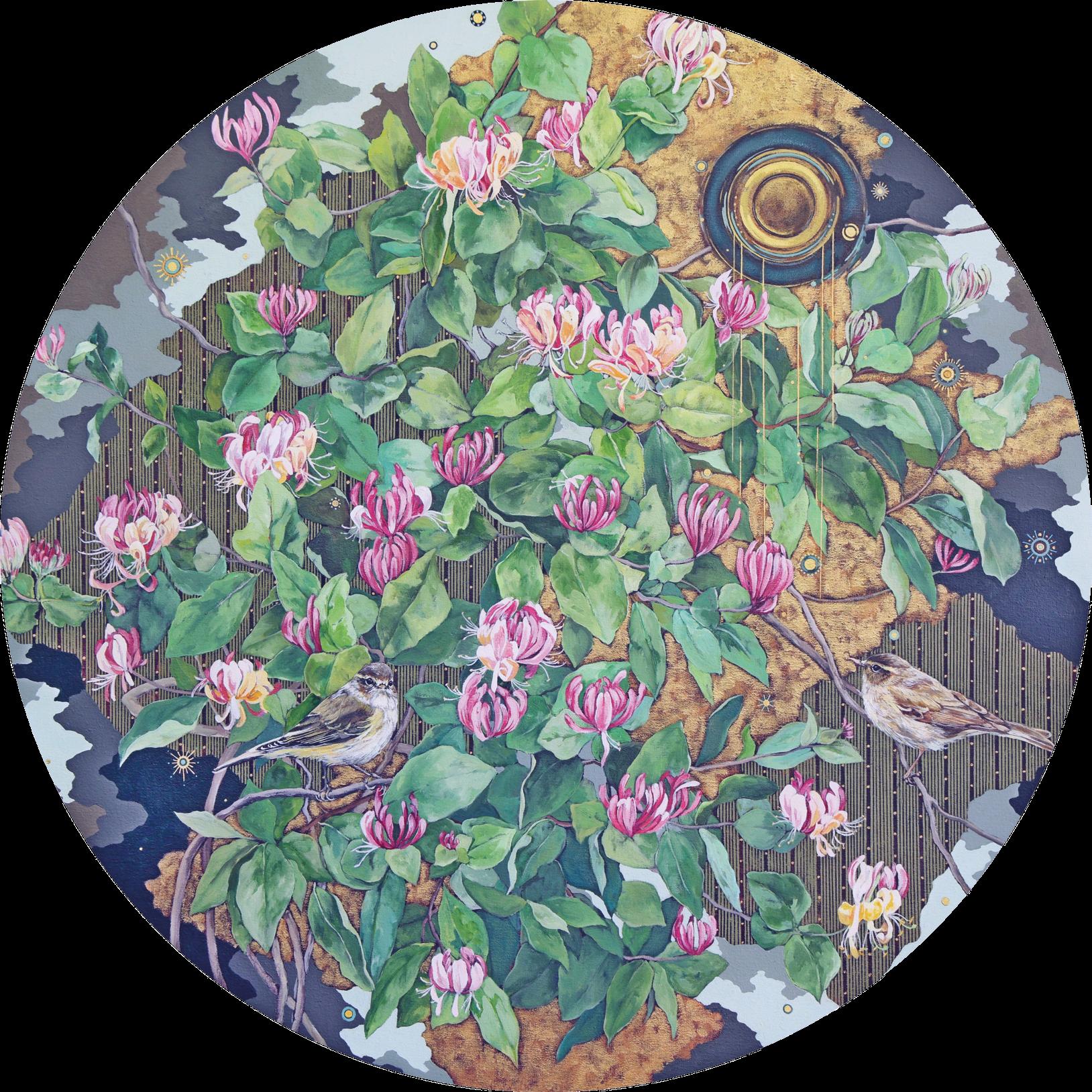
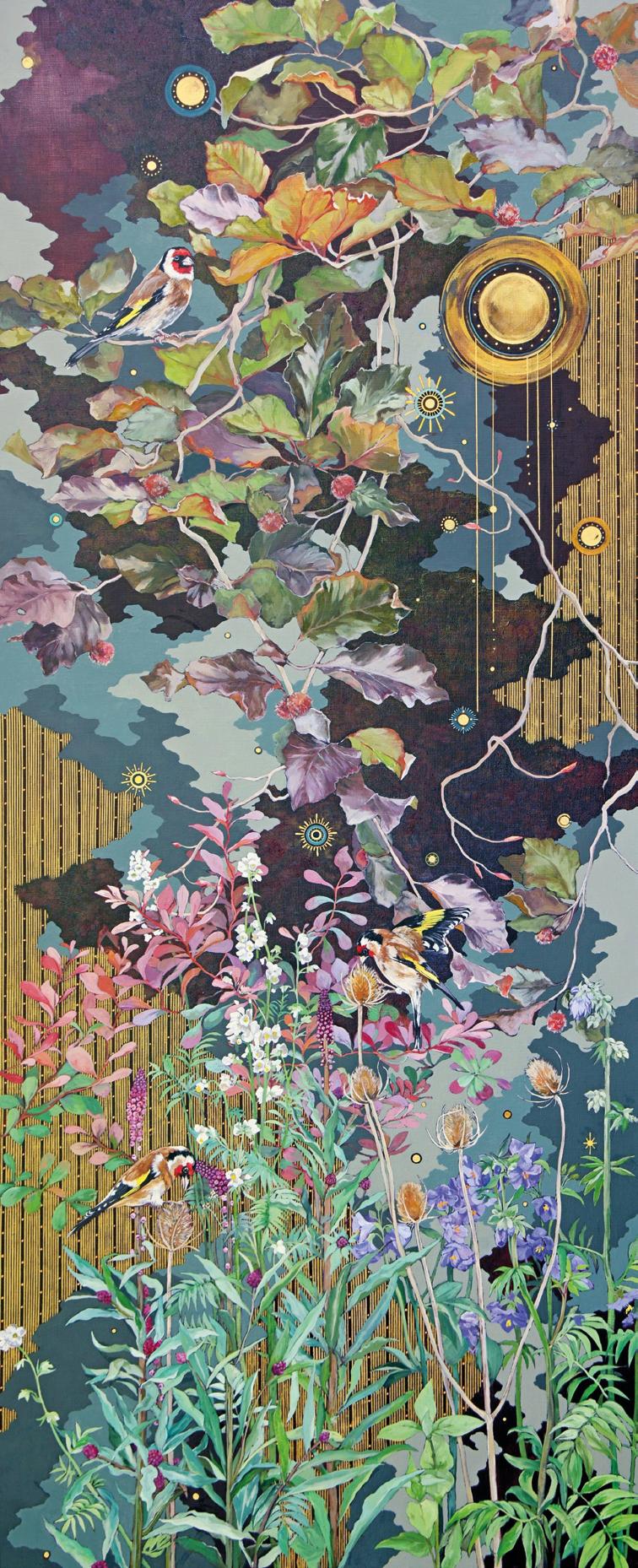

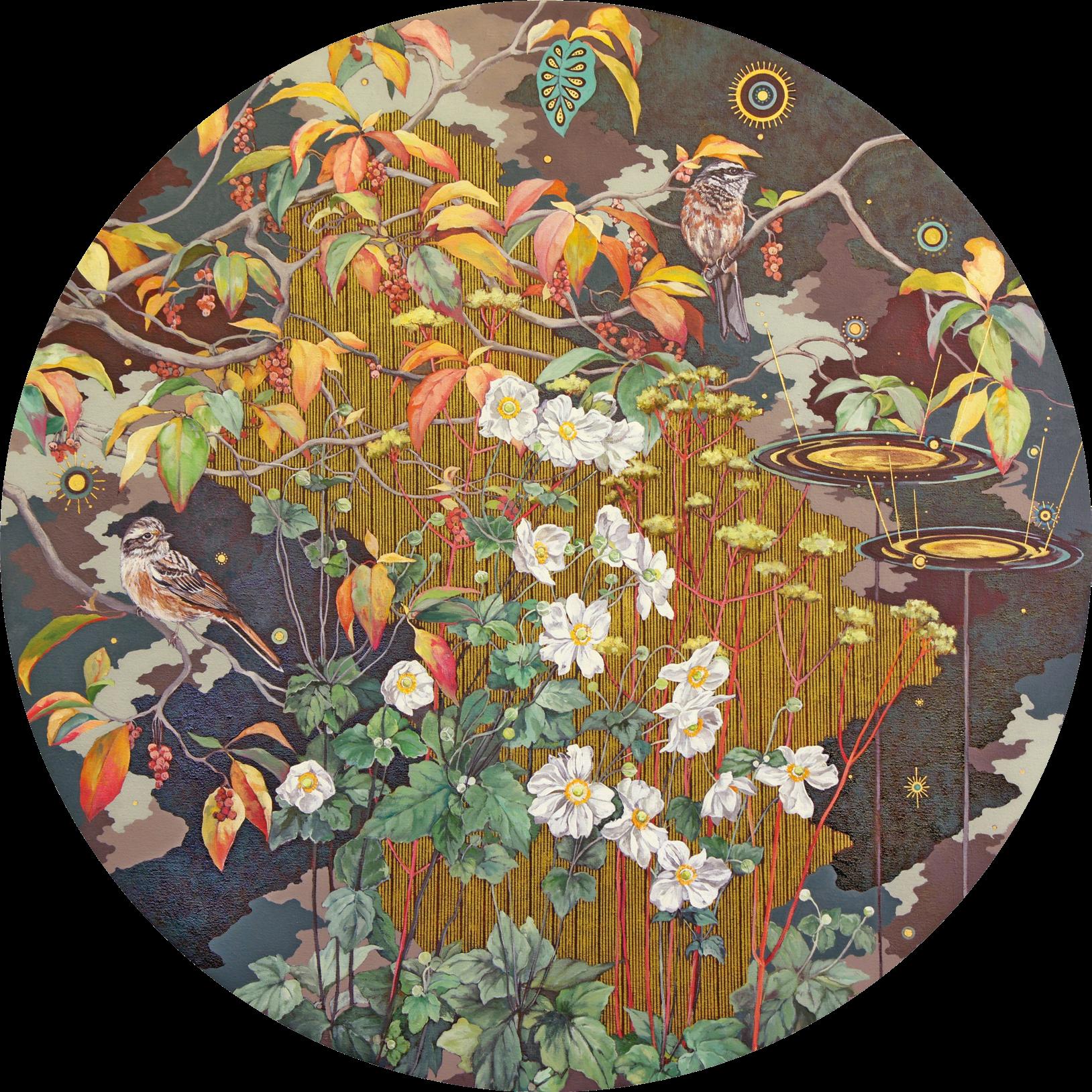
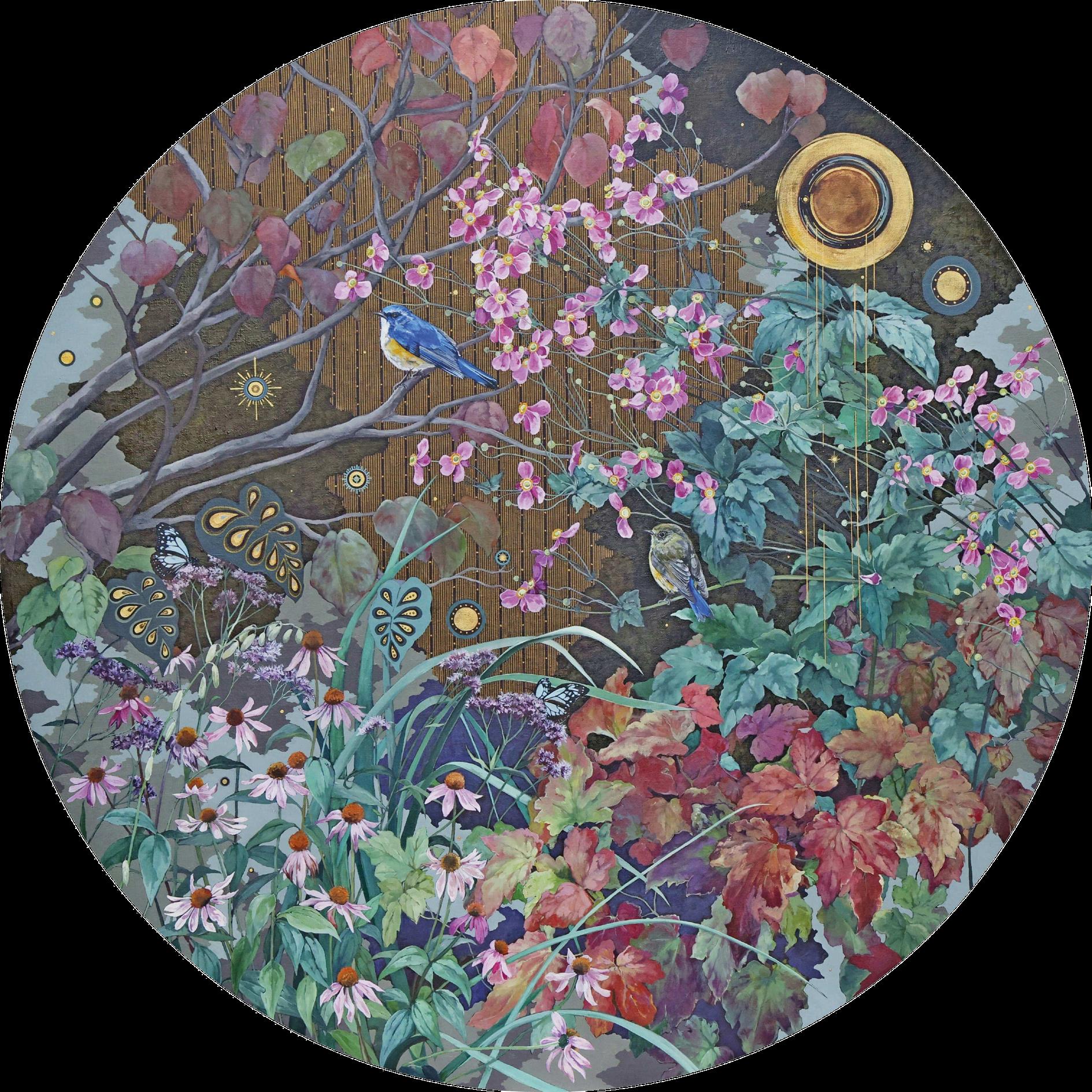
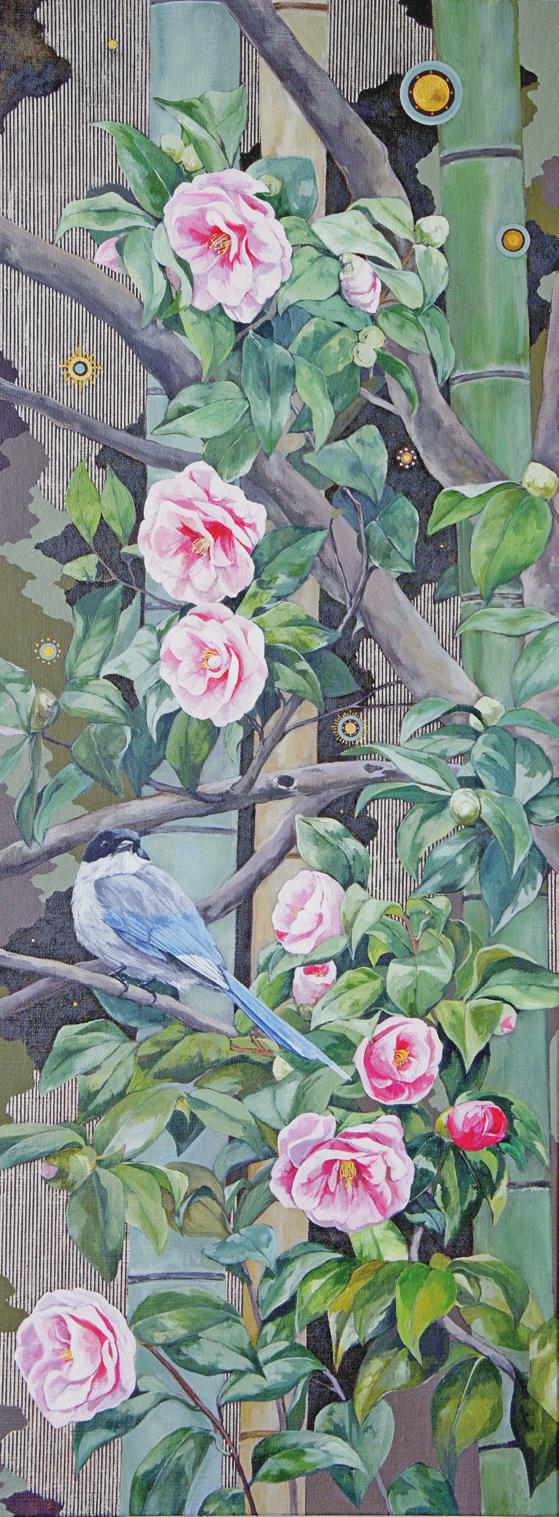
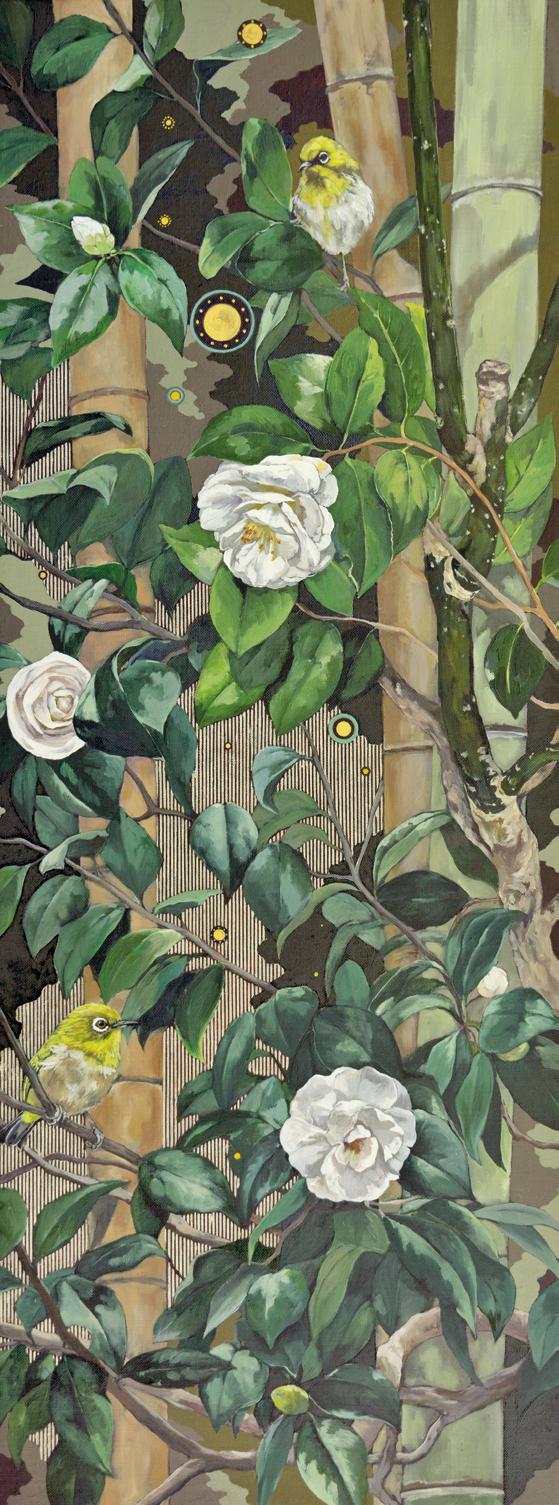
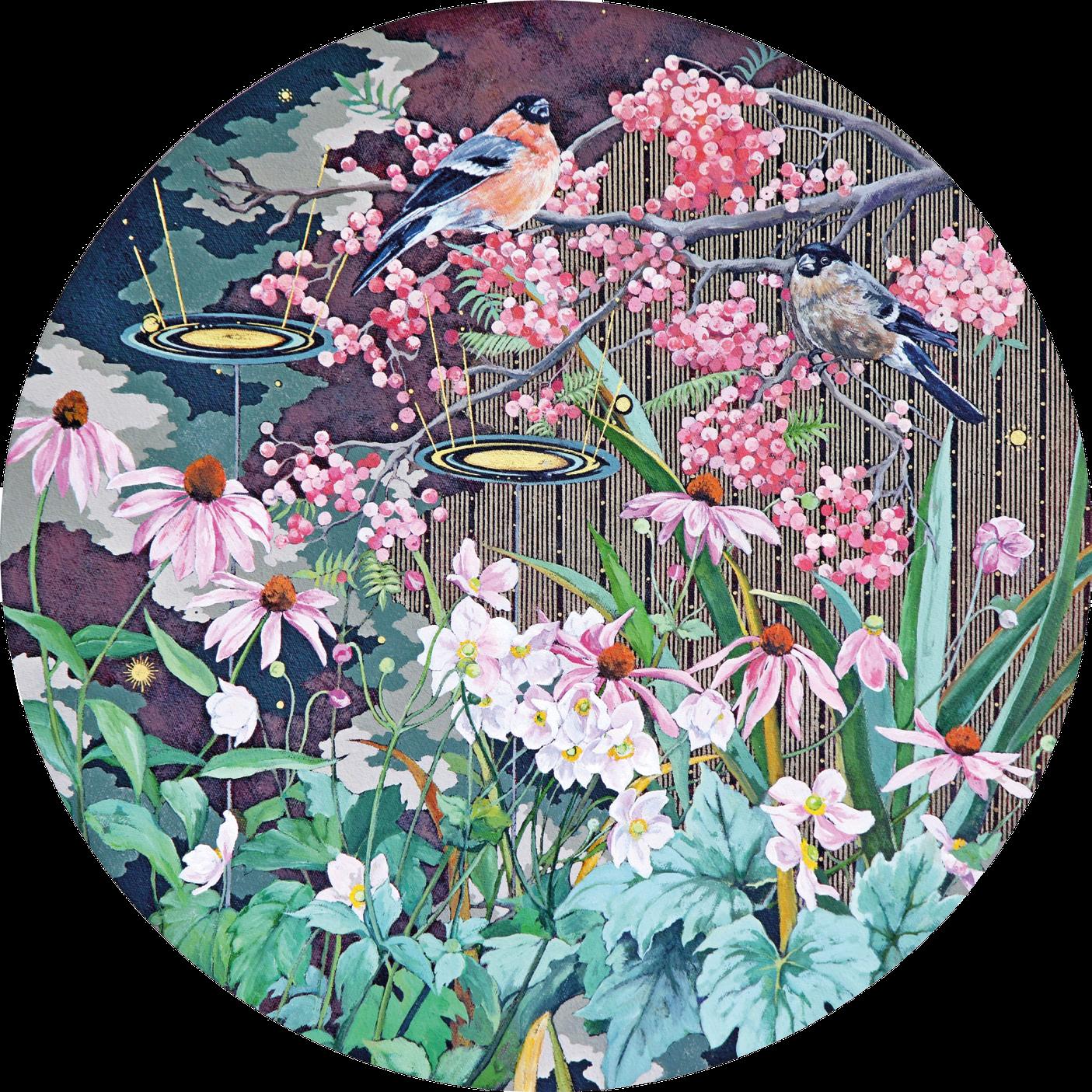
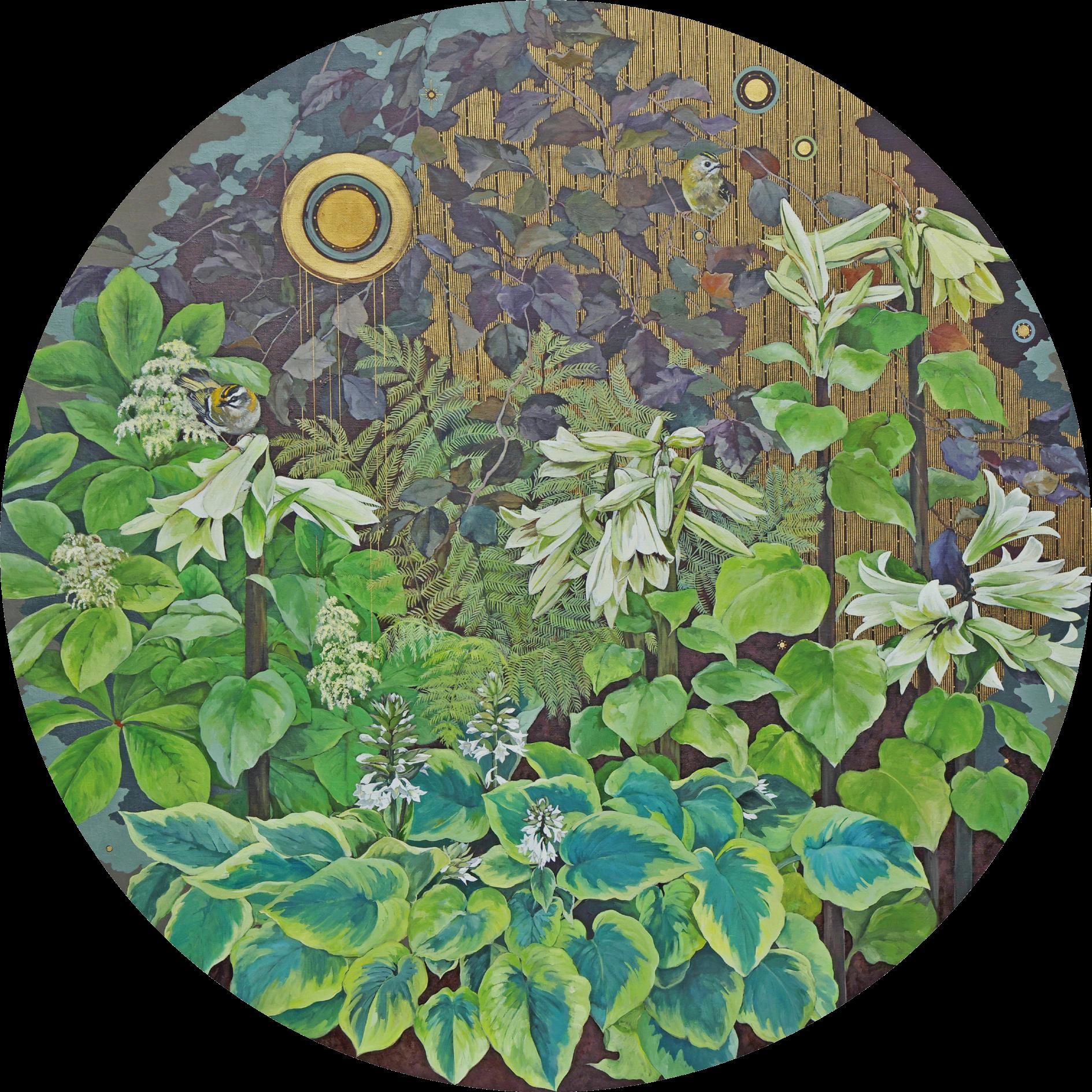
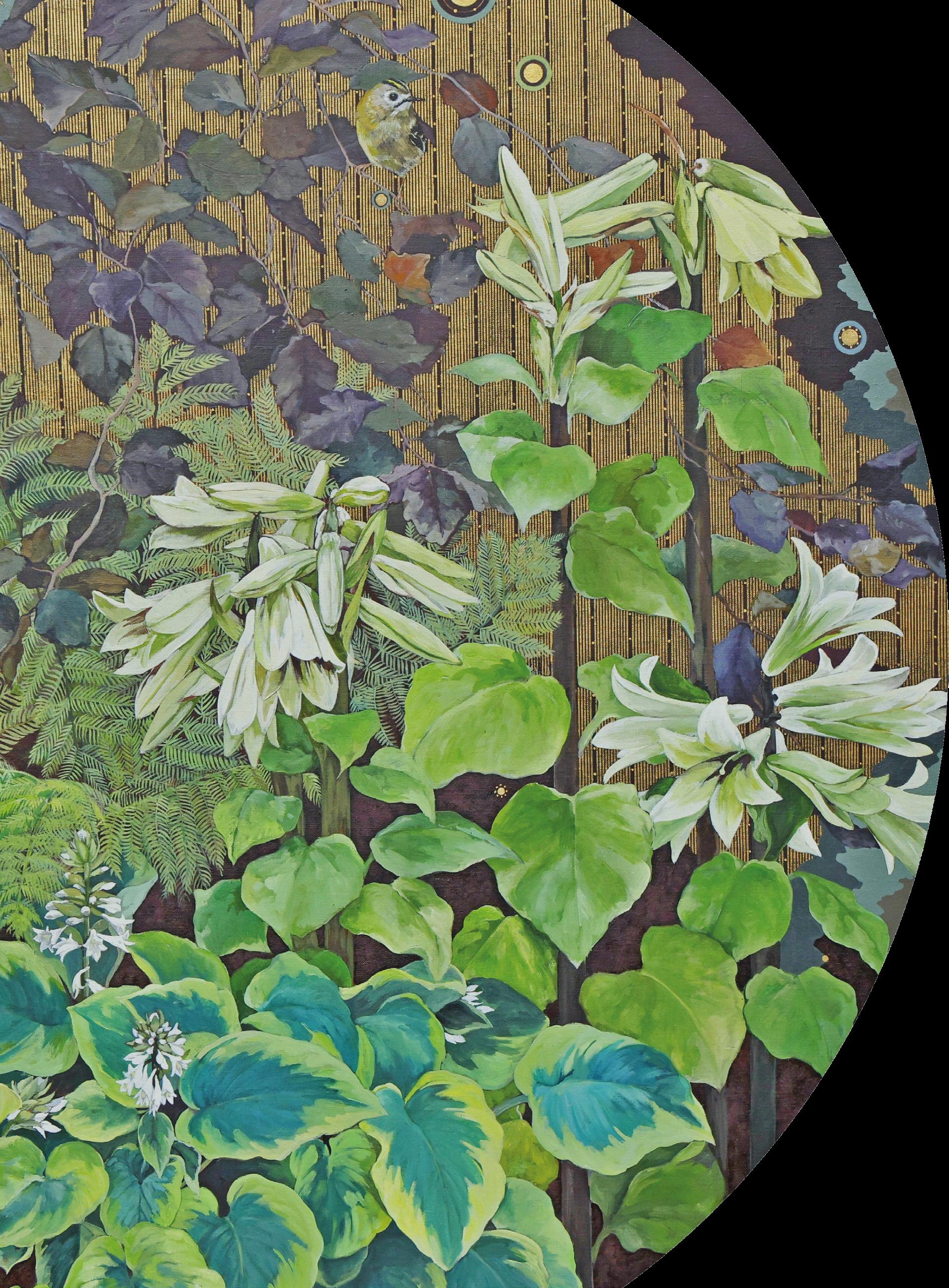
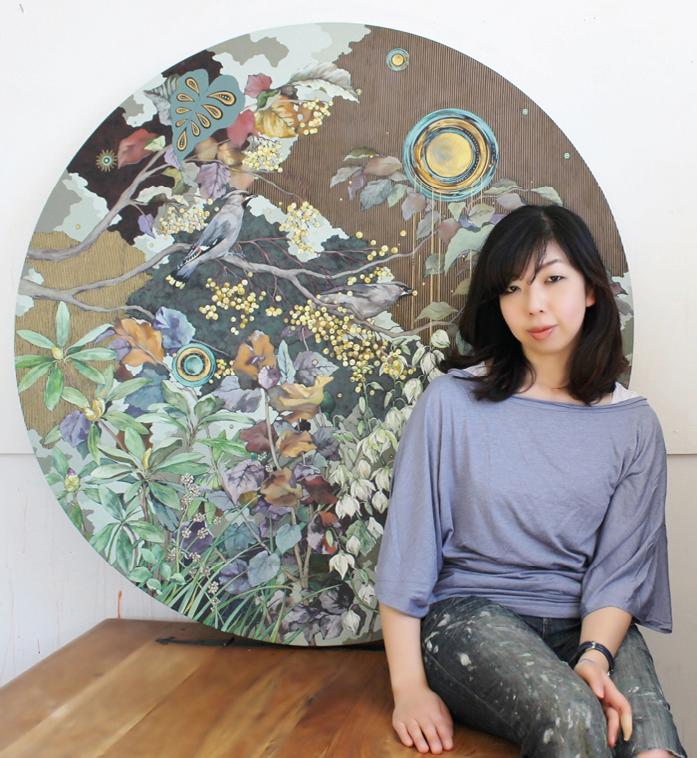
biography
1999-2001
M.F.A., Painting and Drawing, Edinburgh College of Art
1998-1999 University College London Language Centre
Portfolio Preparation, Central Saint Martins, London
1993-1997
B.A., Painting, Tama Art University, Japan
Naoko Shibuya was born and brought-up in Tokyo, Japan. She studied fine art at the Tama Art University, Tokyo before continuing her studies at Edinburgh College of Art, graduating in 2001 with a Master’s in Fine Art in Painting and Drawing. She divides her time between her studios in Edinburgh and Tokyo.
I draw ideas from the form of trees, plants, flowers and small birds, not only for visual effects, but also to express the strength and robustness of nature. Plants and flowers show dramatic changes in such a short time when they are in bloom and also when they wither. Each figure in each moment represents the turn of time, which seems to go far towards expressing an invisible stream and the phenomenon of fleeting moments in nature. I have been trying to capture something of its essence. I am inspired by the strength and resilience of the natural world. Naoko Shibuya
Published by The Scottish Gallery to coincide with the exhibition:
Naoko Shibuya
Sanctuary
October 2024
Exhibition can be viewed online at: scottish-gallery.co.uk/naokoshibuya
ISBN: 978 1 912900 89 3
Designed and produced by The Scottish Gallery
All rights reserved. No part of this catalogue may be reproduced in any form by print, photocopy or by any other means, without the permission of the copyrightholders and of the publishers.
Front & Back Covers: AutumnNostalgia, 2024, oil on canvas, D120 cm (cat.26)
Inside Front Cover: Tsubaki III, 2023, oil on canvas, 95 x 36 cm (cat.6)
Inside Back Cover: Tsubaki IV, 2023, oil on canvas, 95 x 36 cm (cat.28)

